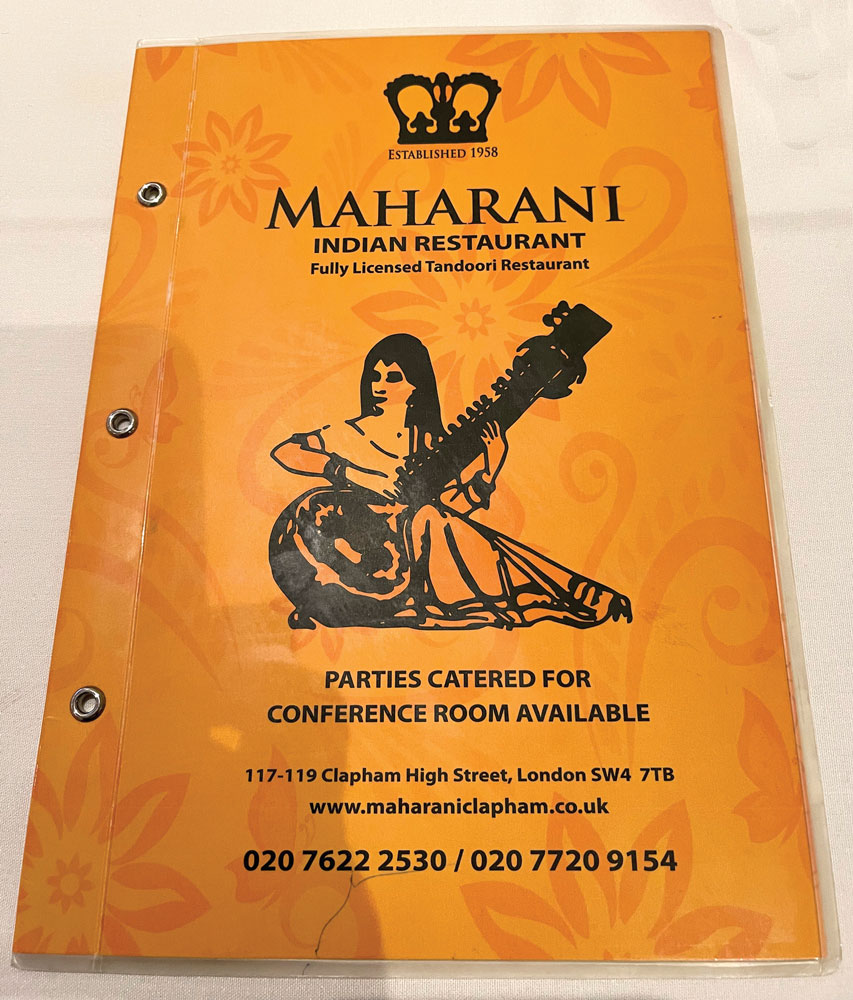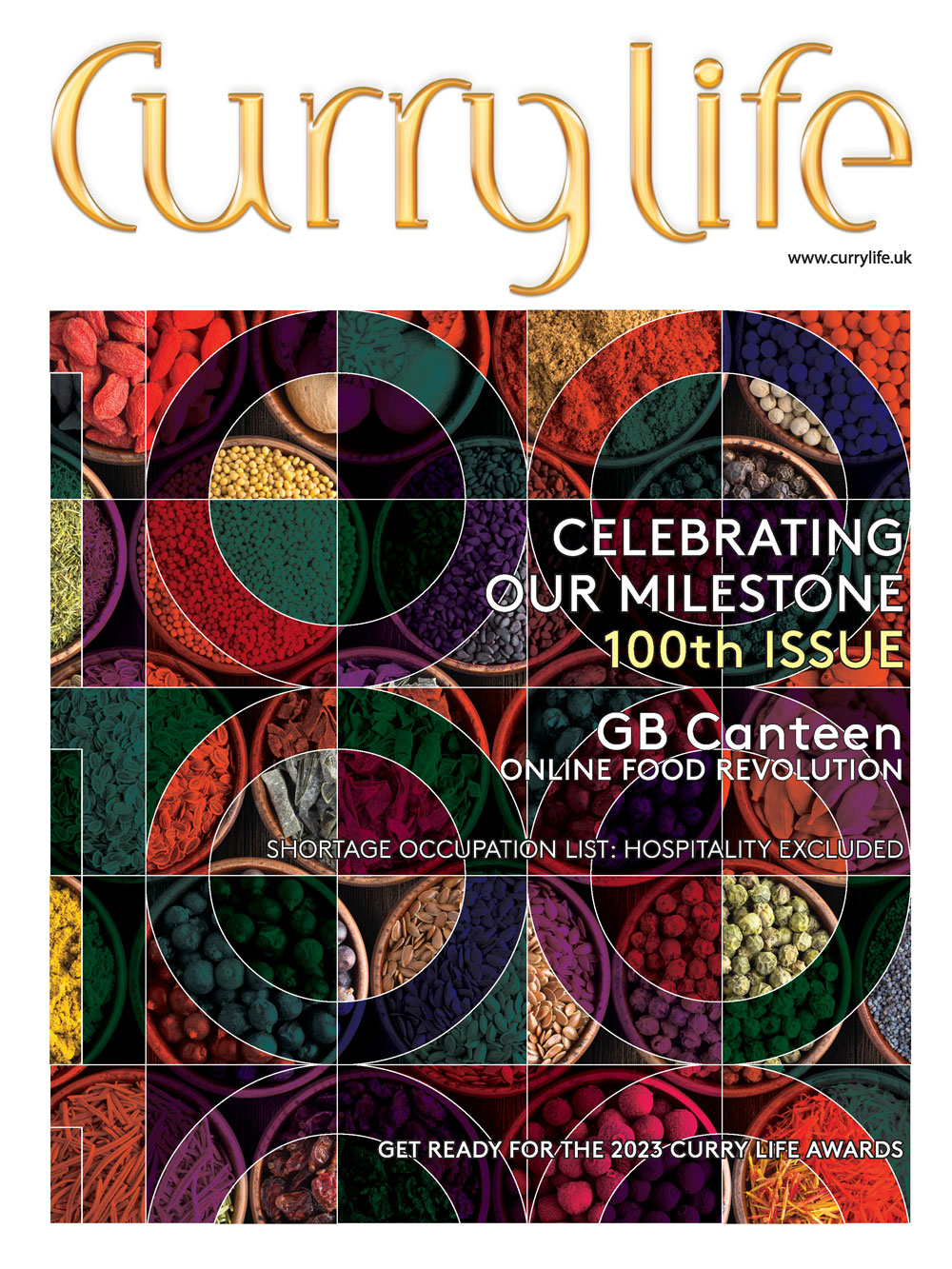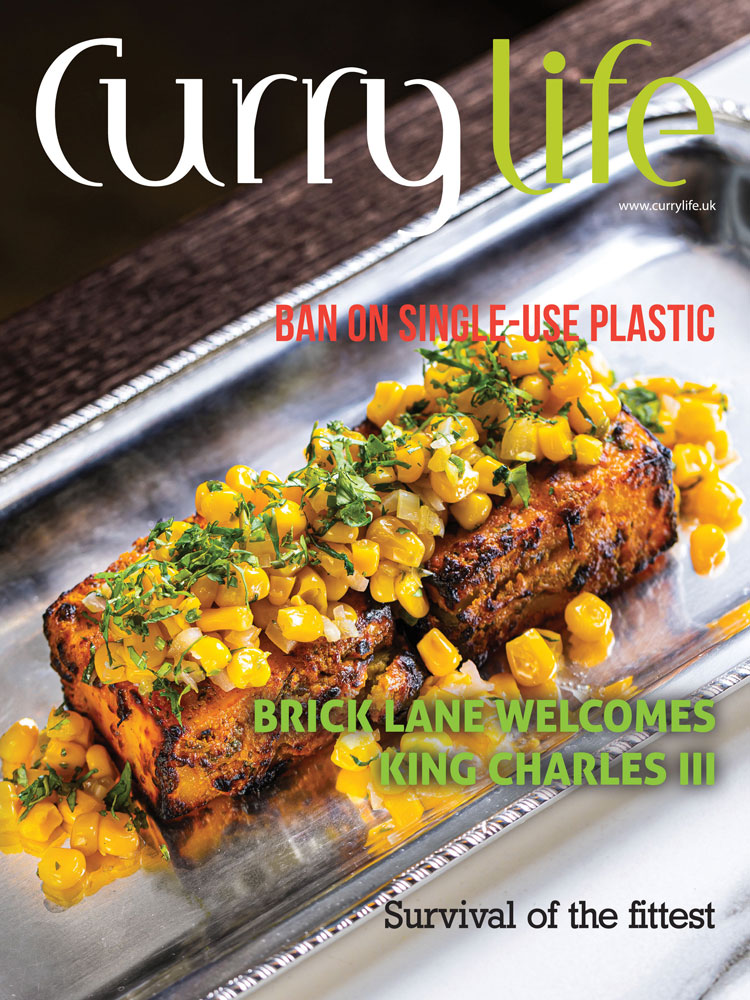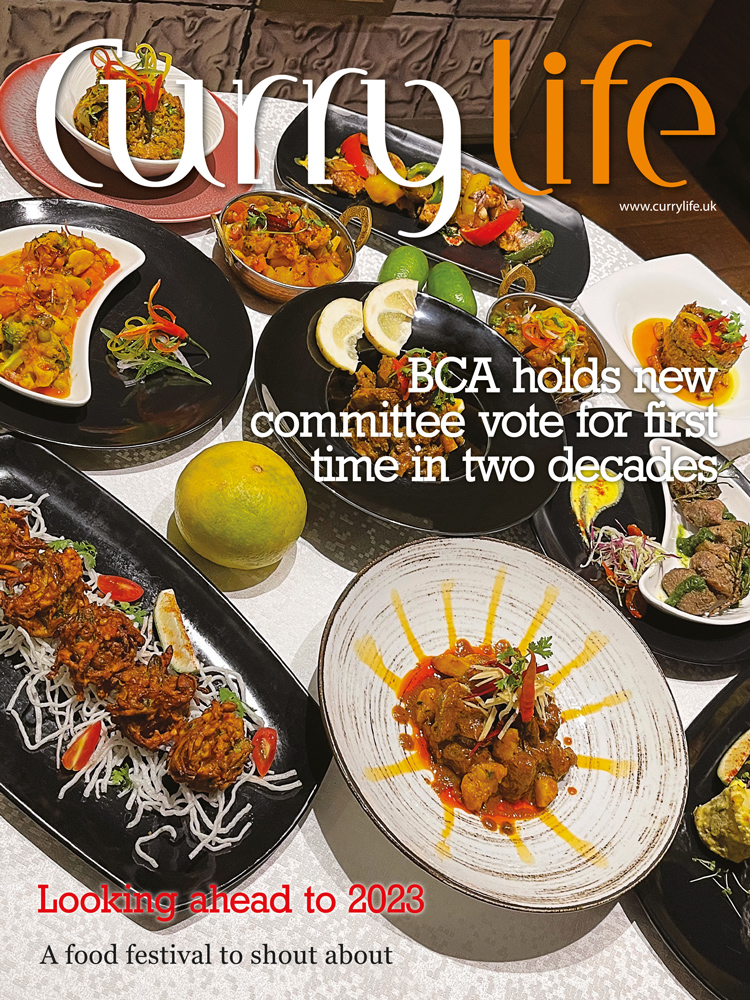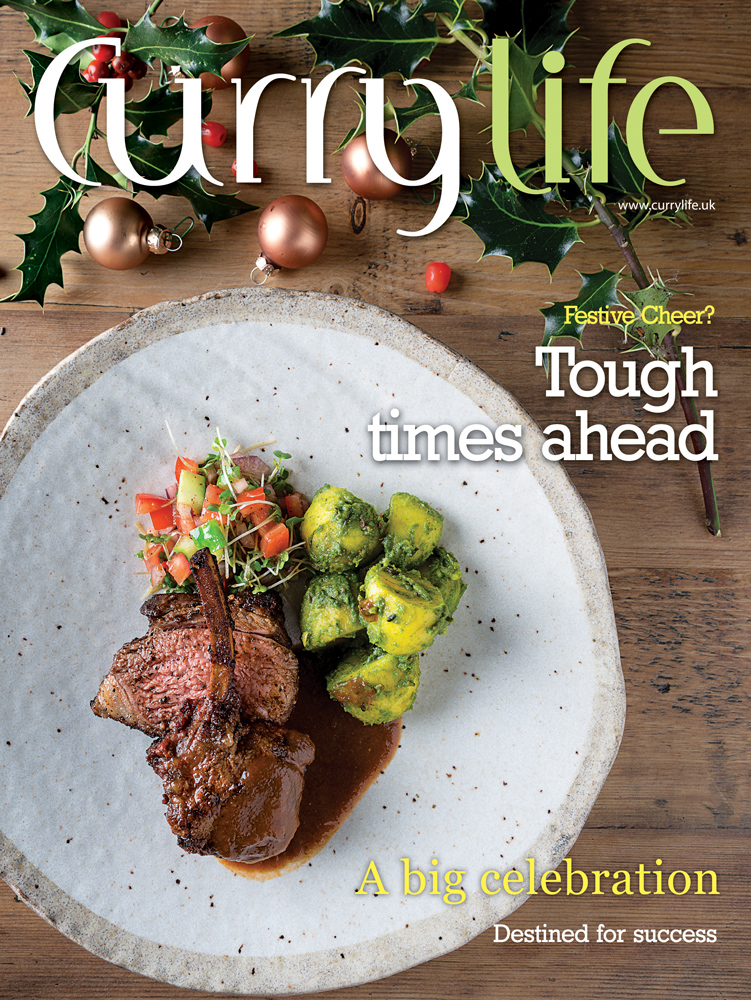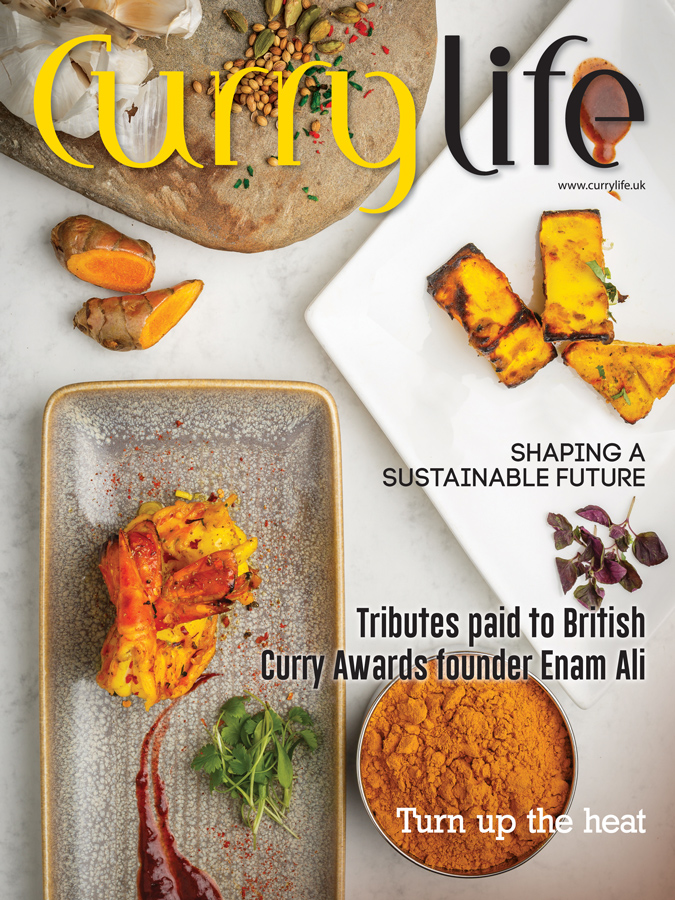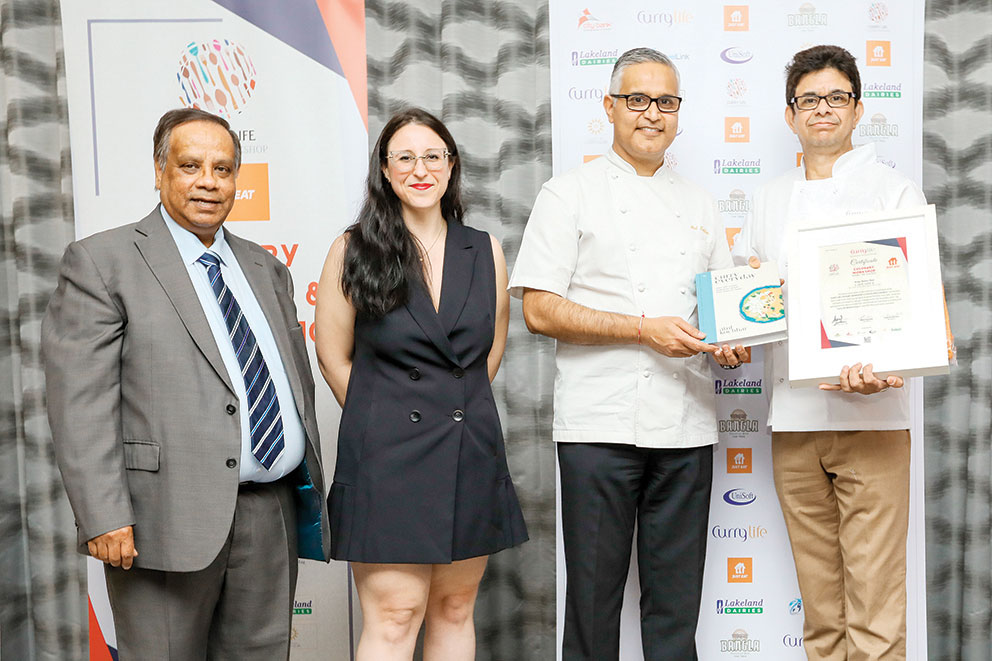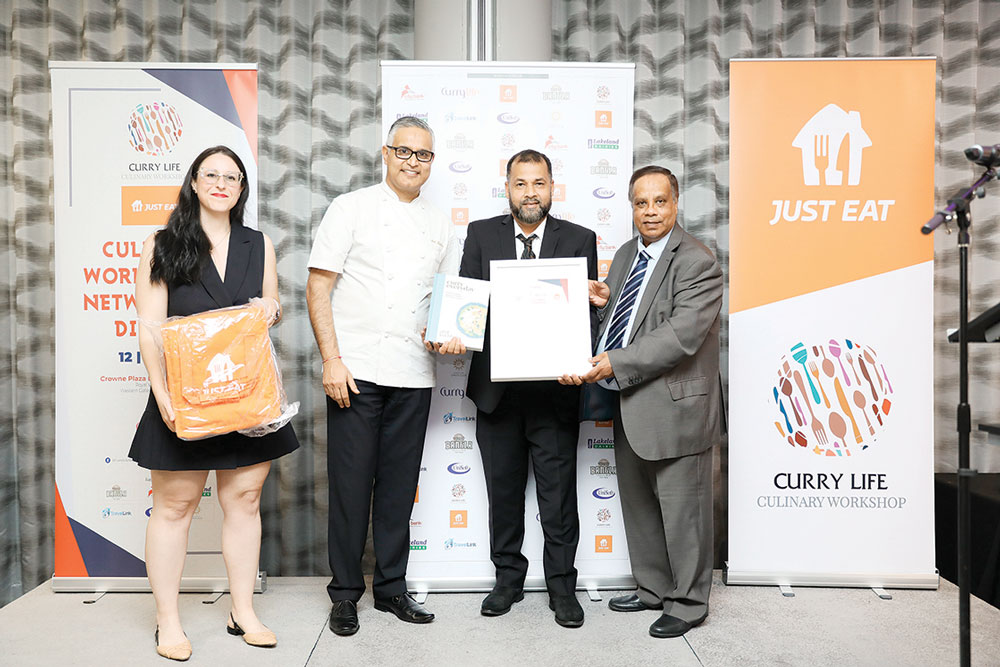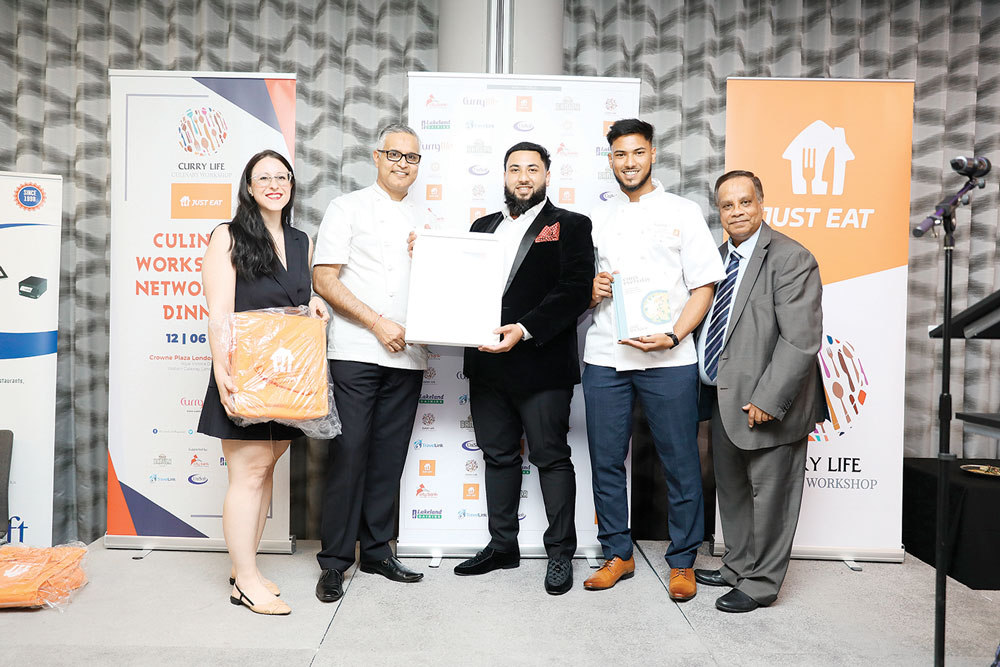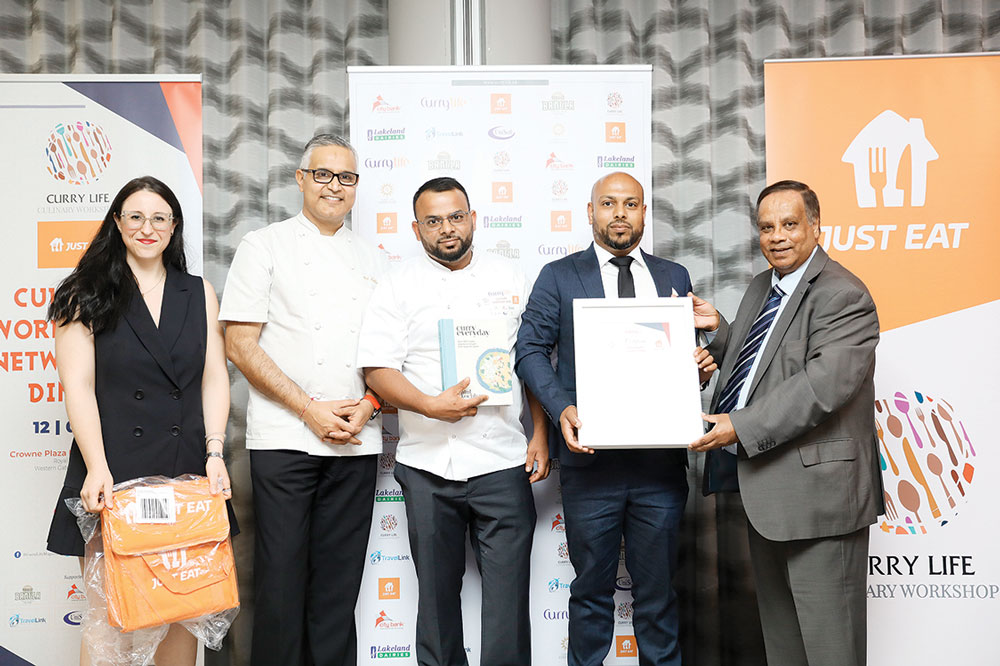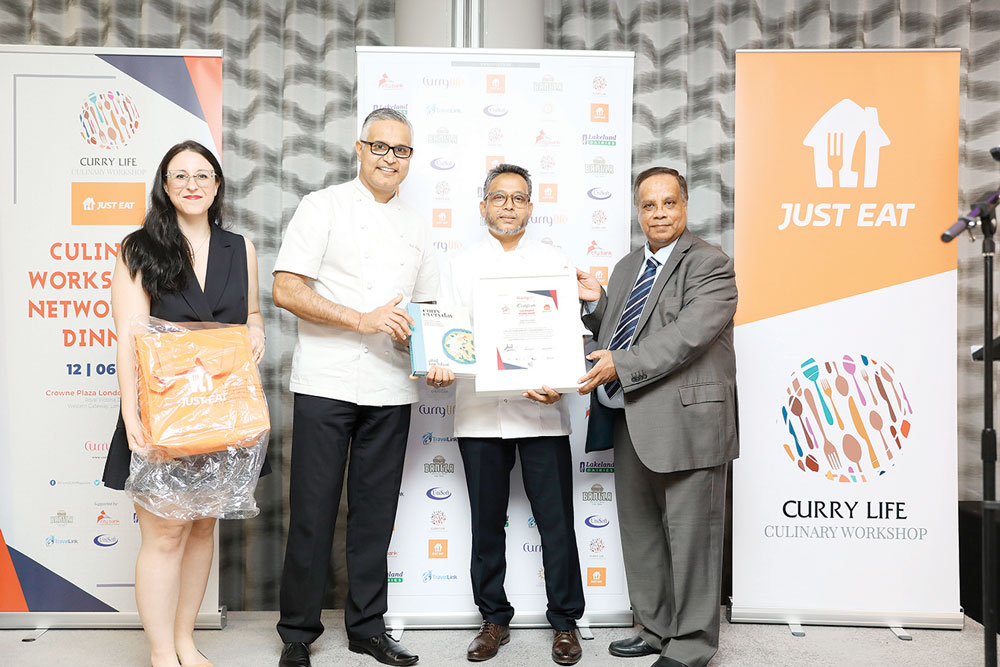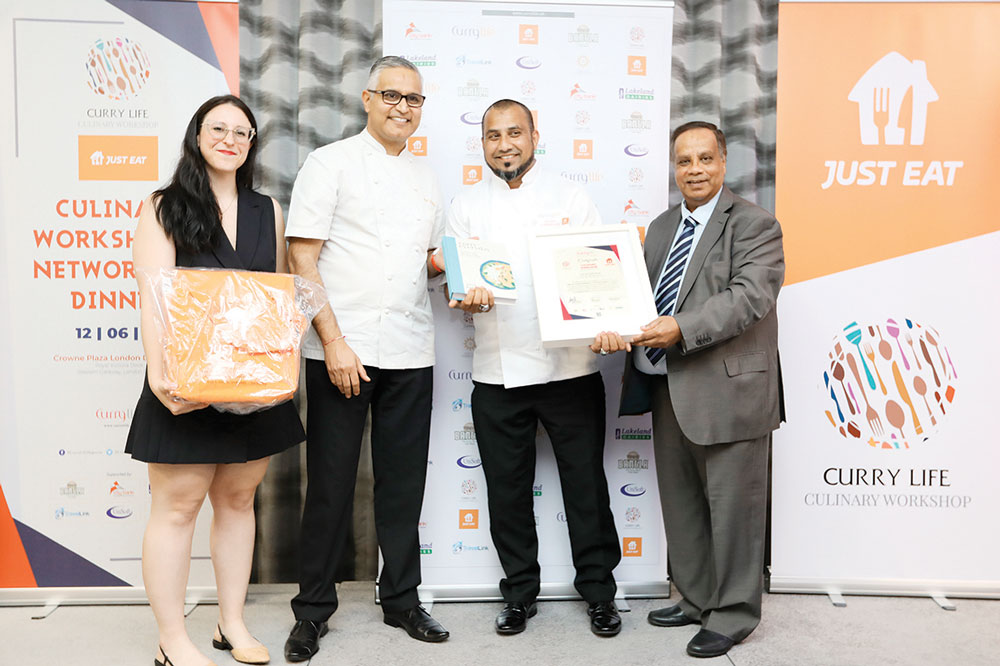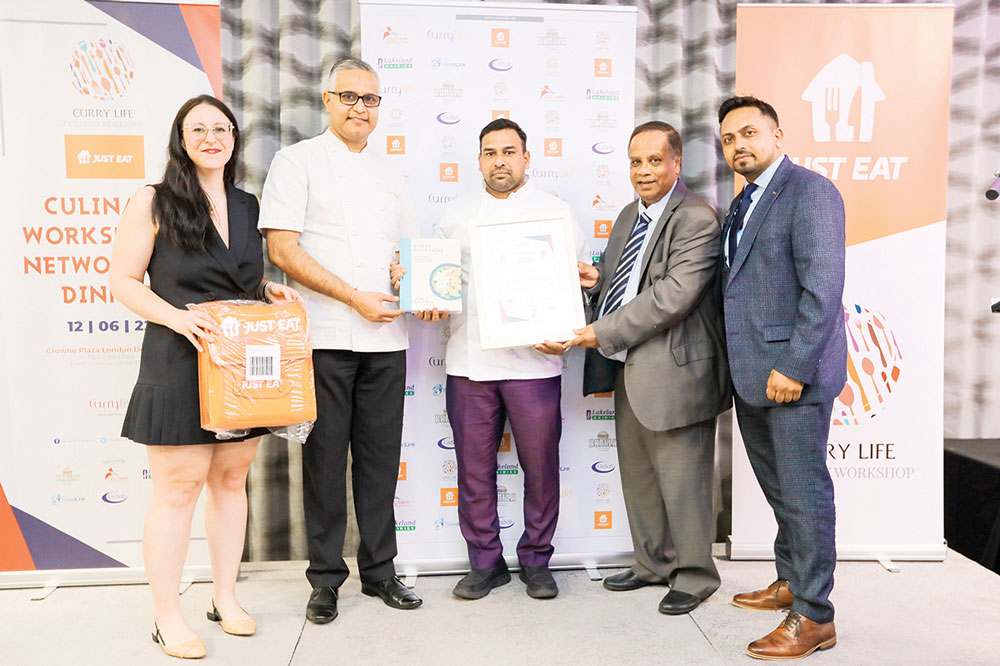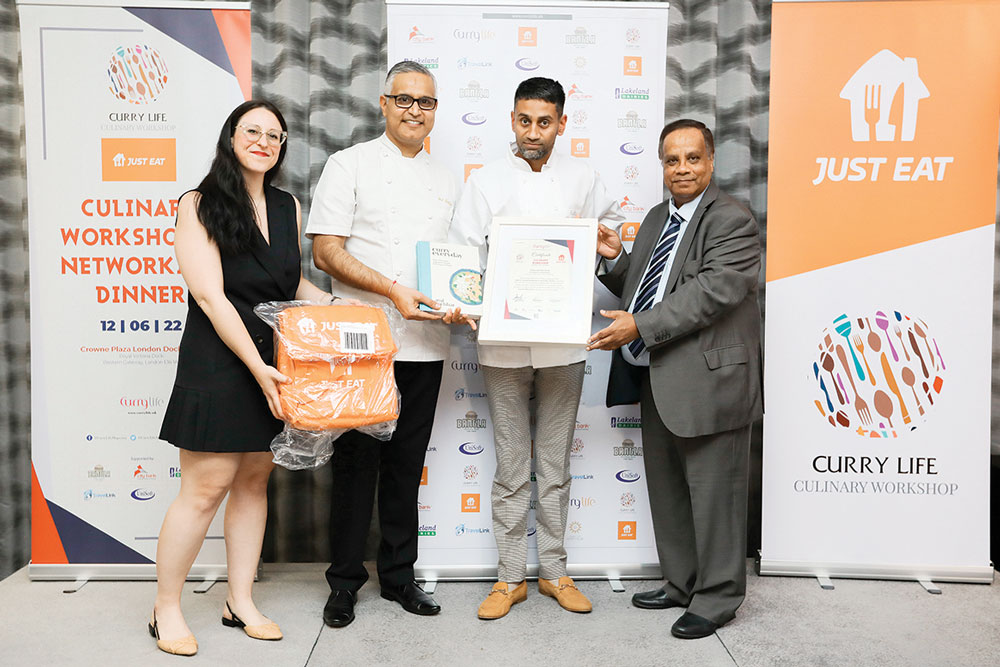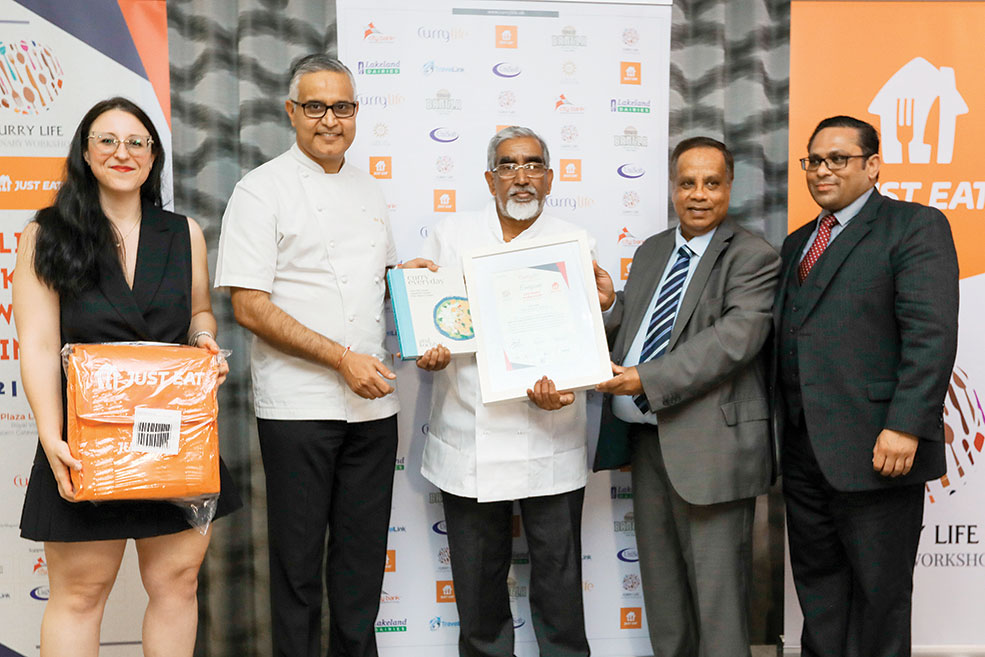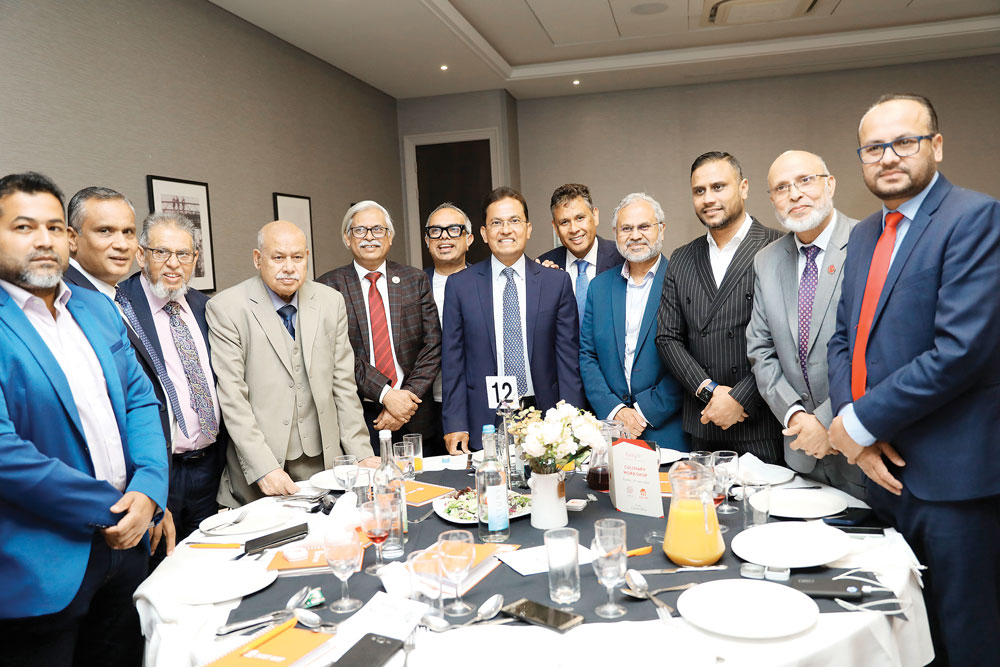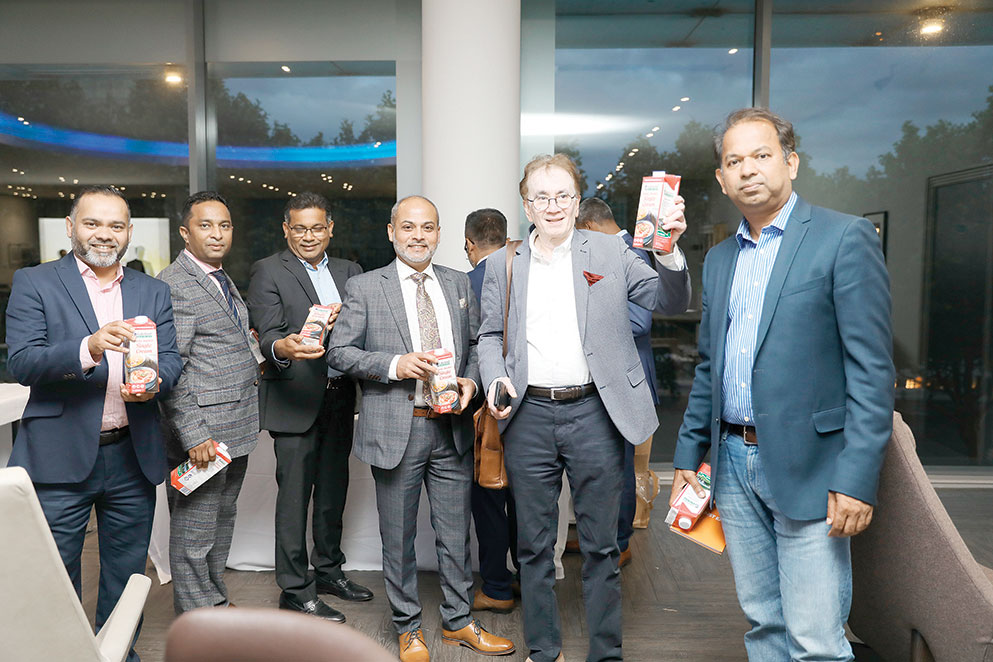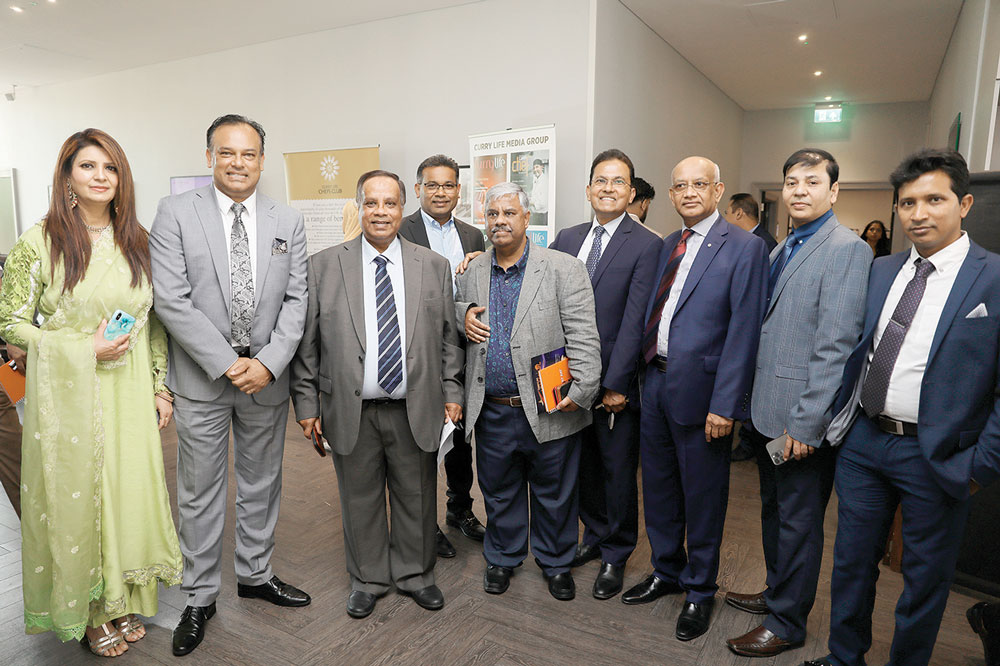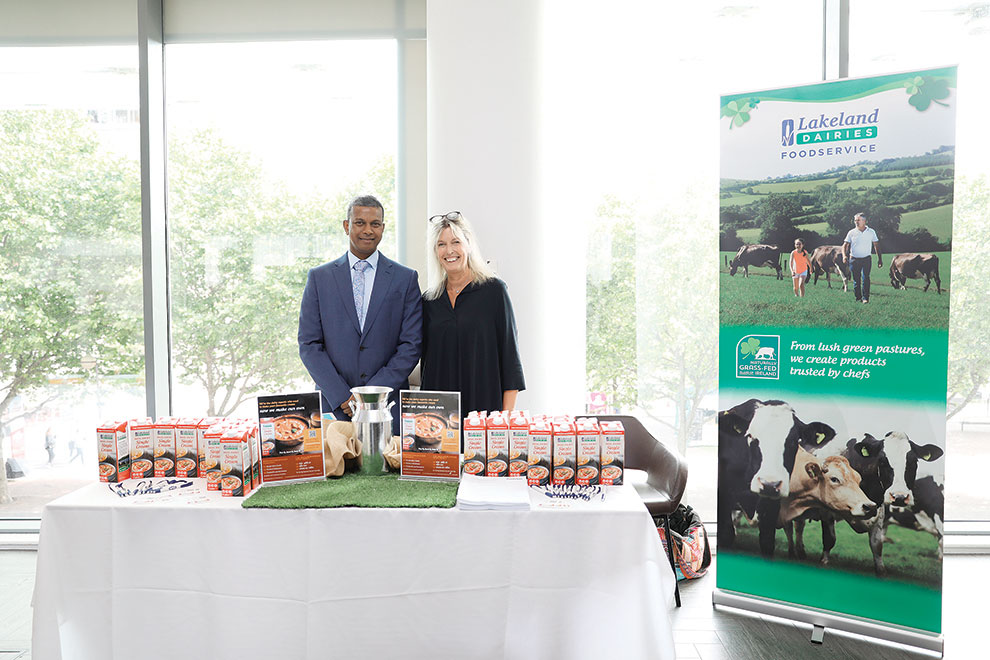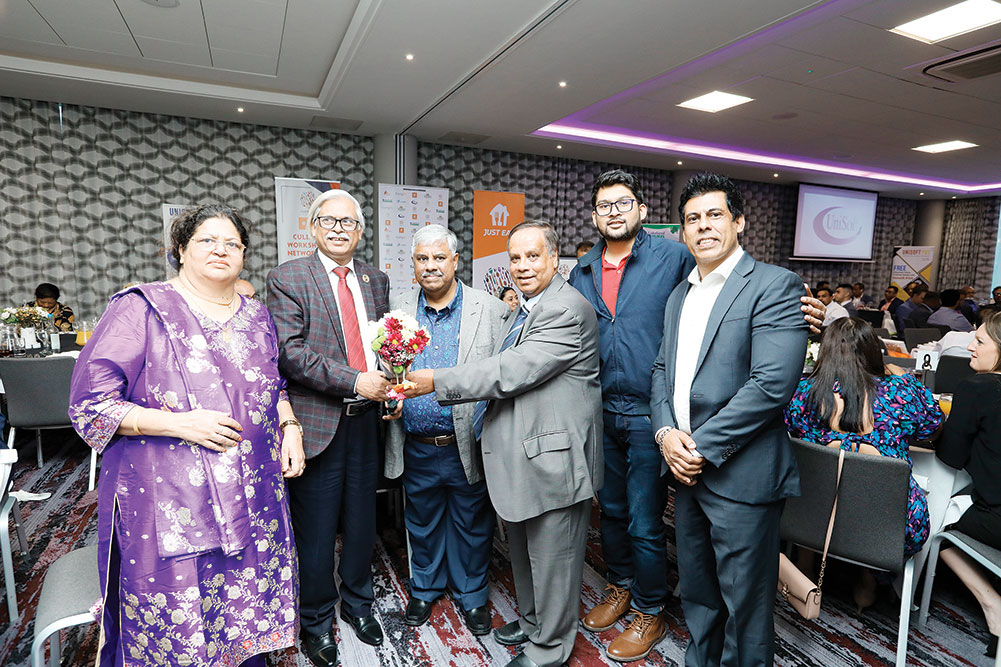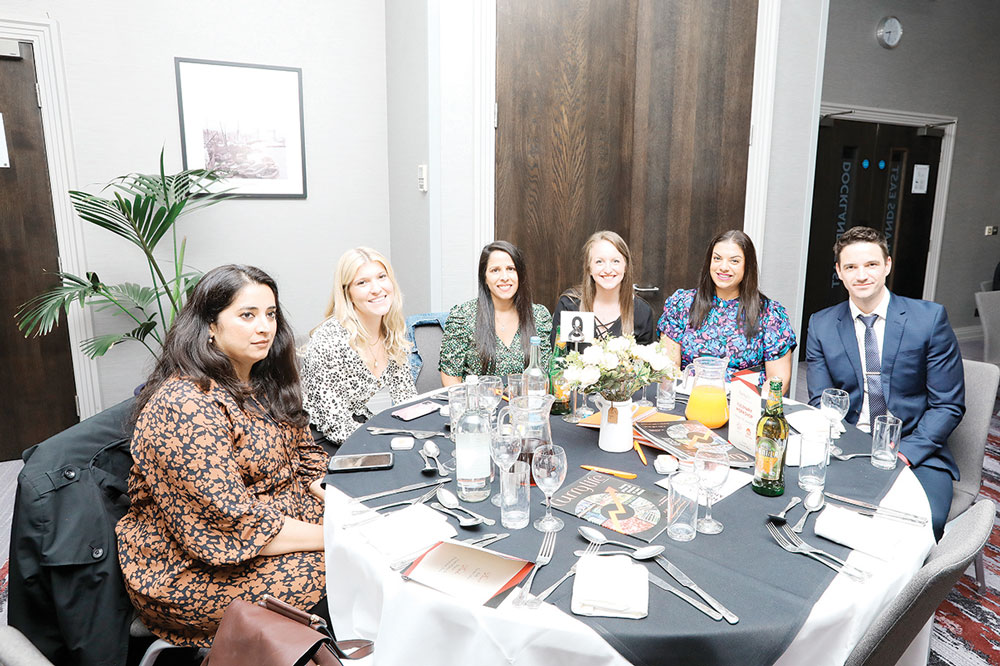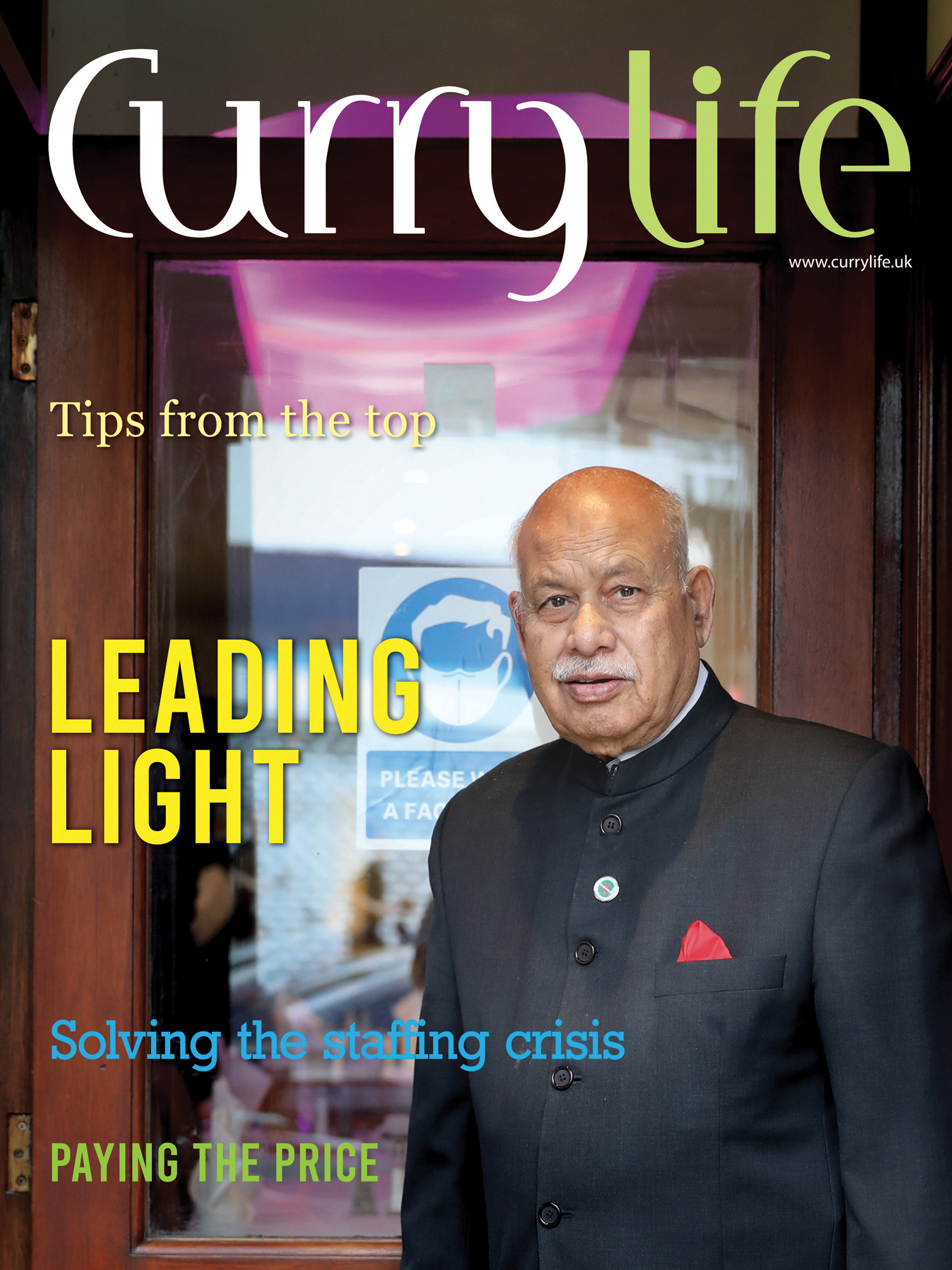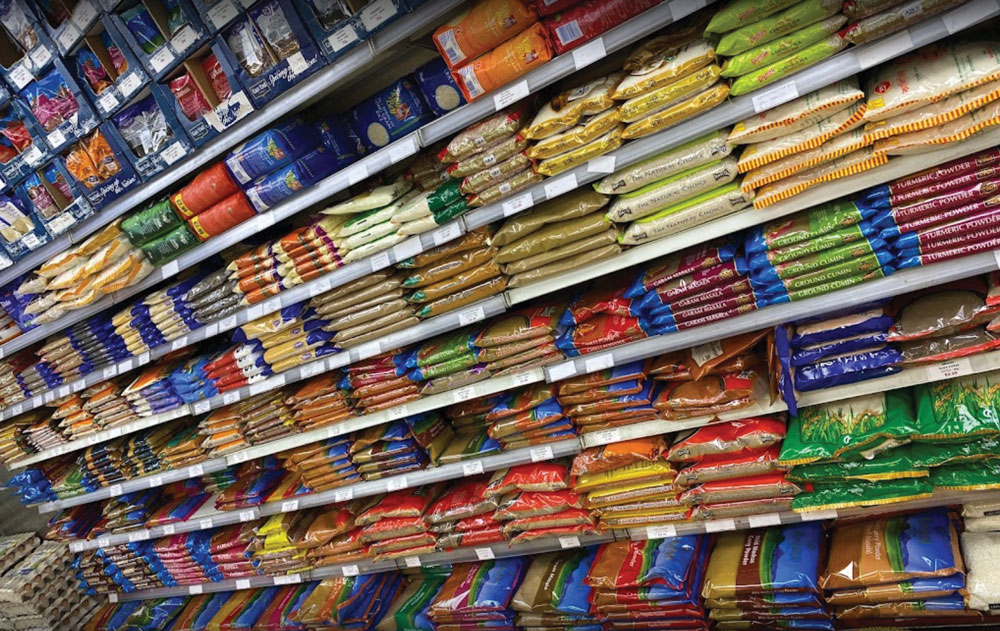
SOARING PRICES PUT PRESSURE ON CURRY INDUSTRY
SOARING PRICES PUT PRESSURE ON CURRY INDUSTRY
Mounting food and energy prices are pushing the curry industry to its limits. Restaurateurs, suppliers and trade organisations weigh in on the crisis
Brexit, the Covid-19 pandemic and now huge hikes in the price of food are putting unprecedented levels of pressure on the many small businesses, such as curry houses, that make up the UK’s hospitality sector.
An additional nail in the coffin was Chancellor of the Exchequer Rishi Sunak’s recent announcement to end the 12.5% VAT relief rate for the industry. From 1 April, the VAT rate for most goods and services within the hospitality industry has returned to 20% (the temporary reduction from 20% had been introduced during the pandemic).
The price of food has been rising steadily over recent months due to a number of factors: bad weather conditions have impacted harvests and there have been increases in the costs of processing meat, as well as higher oil and energy costs. The conflict in Ukraine has only served to make a bad situation worse. A report from analysts Kantar, released last month, pointed to how grocery prices rose at their fastest rate in more than eight years in February. The report said this situation is likely to continue as a result of supply-chain disruption and the conflict in Ukraine.
Curry Life spoke to a number of curry houses and suppliers, all of whom expressed anxiety, not just about the current situation and the rising costs of key ingredients such as spices, oil, onions, tomatoes, peppers and meat, but also about what might happen in the coming months.
Surviving but not thriving

Iqbal Ahmed OBE is chairman and chief executive of Seamark Group, an exporter and distributor of frozen food and one of the largest suppliers of king prawns to the restaurant industry and retail. The business has been going for more than 45 years and is headquartered in Manchester, with operations in Bangladesh too.
“Small businesses cannot sustain themselves with all these price rises, big businesses will also suffer but they have more resources to lean on,” says Ahmed. “We are surviving but not doing great, we cannot fulfil our ambitions to expand. We had blueprints drawn up and consultants on board but we are literally just hanging on. All we can do is continue to pay our bills, our staff and our suppliers.”
Ahmed believes the pressures stemmed from when the UK exited the European Union, resulting in different currencies to deal with and increasing bureaucracy. The pandemic too prompted a huge growth in online businesses, which he said has also had a detrimental effect on small businesses, as it has widened the competition.
“It was a shambles dealing with different exchanges and you can imagine what happens with fluctuating rates; if you buy in dollars and it is strong against the pound, your prices go up,” he explains. “We are not getting any deals – there is nothing available for the food industry, And we lost a lot of our European staff because of Brexit, particularly many of our drivers.”
Ahmed adds that freight costs have also more than doubled; as an example, he says, the cost of importing containers from India, Vietnam, Bangladesh or China was around $2,500, the price has increased massively and there is also a shortage of containers to contend with, which only serves to push prices up even more.
“I am suffering and so are my staff,” he says. “We need to put pressure on the Government and raise awareness of these issues. Curry houses are very vulnerable as they are small businesses and most of them will not be making money – their bills will be more than their takings.”
Take an honest approach
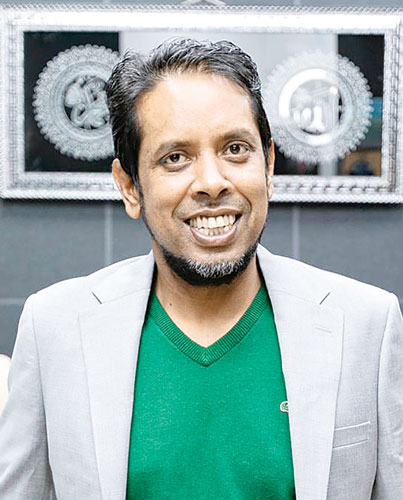
Aklu Miah, who runs superstore Food Bazar, says he has received a lot of complaints from customers (a mix of mostly retail with a few curry houses), but says there is nothing he can do as he is having to buy in the goods at inflated prices too.
“Everything is going up – mostly oil and meat, and we can’t pass on too many margins,” he says. “People are cutting back on the more expensive items, but we are still selling, albeit a little less. There is a lot of competition so we are being honest with our customers.”
Shahanoor Khan, the owner of Cafe Goa in Barton-Le-Clay, says increasing menu prices is not the answer.
“Our menu prices cannot change frequently, otherwise the customer notices this and instead of coming twice a week, they will only visit once a month,” he says. “The financial help from the Government can only help in the short-term; I am very scared when I see my invoices and on top of this, my staff are asking for an increase in wages as their cost of living has gone up. Even if I were to consider putting prices up, this is not something I can implement immediately, it will take time to design the menus and print them.”
Khan adds that curry houses are already suffering from a staff shortage and says it’s vital for the younger generation to step up and help where they can.
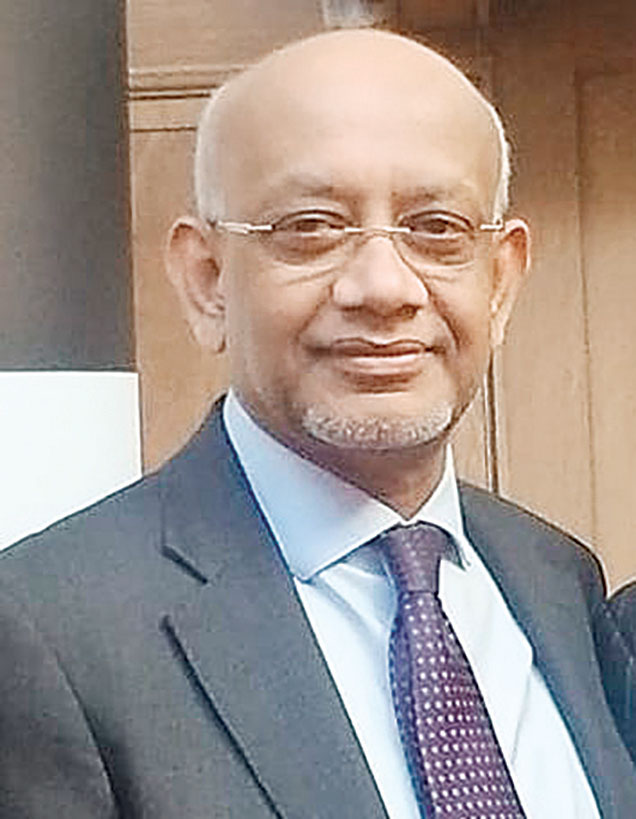
“We need to make the curry industry attractive to younger people and also boost their perception of cuisine and being a chef – it’s an art and a respectable profession,” he says. “And suppliers need to ask themselves this question: if restaurants are not buying their goods, then how will they survive?”
Balancing act
Razz Ahmed, who owns two curry houses in South Shields, has a similar view. In the new year, his businesses were just getting back on track following Covid.
“Our customers are happy and we’ve got a lot of plans for this year and we hoped to overcome all the Covid challenges,” he says. “But now prices have gone through the roof, I can’t just put the prices up on the menu, I have to balance things. We need support from suppliers, everyone is in the same boat. In the last few weeks, meat, chicken and oil has doubled in price and we expect these to get higher. If we increase our prices, we lose customers.”

Ahmed is leaning towards having fewer items on the menu and reducing staff numbers as those options are less likely to alienate customers while helping him to reign in costs. At present, he only has the minimum number of staff working as he has already cut their hours down. He also says he is fortunate in that many of his staff are family, making it an easier proposition to reduce or increase their hours, while having staff on hand that can work at short notice.
“We can increase the prices of our dishes but even then the margins won’t be enough, so the plan is to make the menus smaller and cut staff,” he says. “And whatever we do, it will need to be done quickly and then it will depend on the customers – if they are not happy we will have a rethink and if they are happy, that will go towards our bills and wages.”
For Ahmed, a reduced menu will apply across the board, from starters to main courses to rice, with four chicken dishes being reduced to two for example.
“It’s a constant juggling act, going from one pressure to the next and we have to take each day as it comes,” he says. “We are not thinking of changing suppliers, they look after us too and we have built a good relationship over many years,”
Maintain relationships
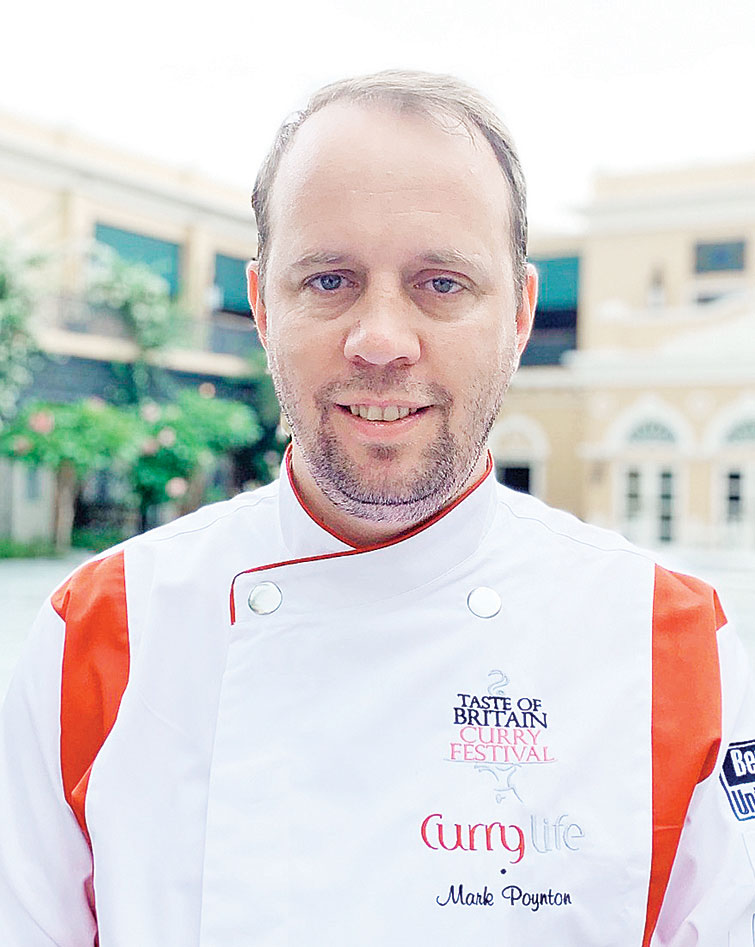
This is a view shared by Mark Poynton, chef patron at Restaurant MJP@The Shepherds in Cambridge. Switching suppliers isn’t the answer as they need support too.
“We all need to back each other in this amazing industry, sticking by our suppliers in these times, as they did to all of us over the last two years, which unfortunately means that customers will have to take a price increase,” he says. “But as a nation we have been undercharging for food in restaurants, which has led to bad farming, because everyone wants the cheapest product, and bad employment practices, because there is not enough money to pay staff. This needs to change and hopefully the situation we find ourselves in can be another catalyst for this.”
Poynton adds that it’s vital for restaurants to be open with customers and tell them that ‘it is not our fault, nor the producers fault, it’s because everything is going up and this is not going to magically go away’.
“Be honest, explain the situation to people and carry on being the best you can be, and hopefully your customers will understand and support you,” he says.
Industry support

Are there any tips for the curry industry from other food sectors? Andrew Crook, president of the National Federation of Fish Friers, the official body that represents the fish and chip industry, says customers will always pay for quality, so it’s vital that the industry keeps maintaining quality levels.
“We are putting workshops on to help members calculate their gross profit and reduce waste,” he says. “Businesses may have to operate reduced hours. They are also reducing the size of their menus too whilst offering smaller options and other species of fish to try to hit a price point. It is going to be really tough out there. This is a huge wake up call for the industry as we are so reliant on imports.”
Crook adds that every small business he has spoken to about the VAT return to 20% feels let down and abandoned.
“The spring statement is rather demotivating and that seems to be the consensus talking to other operators,” he says. “There is strong evidence that a lower rate of VAT not only encourages growth but also reduces fraud; this current system places a penalty on businesses who do everything they should and that cannot be fair. A VAT reduction isn’t a handout, it’s an investment. It would mean leaving more money for the hospitality industry to reinvest in their business, creating more jobs in businesses that supply and service our sector.”
Kate Nicholls, chief executive of UKHospitality said that prior to the conflict in Ukraine, the industry was already seeing inflation. Businesses are being faced with having to either further erode their margins, which is unviable for many independent businesses, or put up customer prices.

“Price increases are inevitable, they are inevitably going to be larger than businesses would like,” she says. “It’s that rock and a hard place, price versus demand. Businesses will look at every way they can to reduce costs and keep prices as low as possible for the customer. But I don’t think it will be possible to insulate customers from price increases, particularly with the rising cost of VAT.”
UKHospitality added that the return to 20% VAT is a real setback for thousands of UK hospitality businesses still suffering the devastating effects of Covid, and facing this tidal wave of rising costs.
“For many businesses, the removal of the lifeline of a lower rate of VAT might prove fatal,” said Nicholls.”For a heavily, disproportionately taxed sector a return to 20% dashes the hopes that many businesses could begin to recoup some of the losses of the last two years. Operators in the sector – large and small, have several hurdles to clear on the road to recovery: huge accumulated debts; unprecedented rising costs for energy and raw goods; a chronic shortage of staff; and a fundamentally unfair and crippling business rates regime we’re desperate to see reformed.”
Read more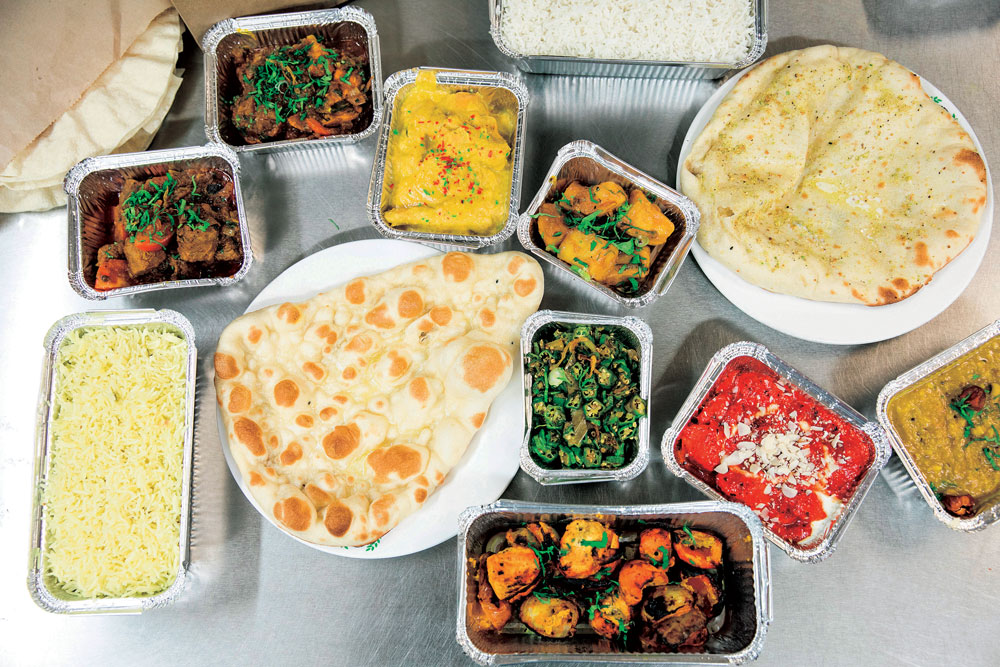
Take – homes for takeaways
Takeaways are big business, having grown across the UK in the last year. Curry Life catches up with two Indian takeaways to find out where the challenges lie and their tips for success

Whichever survey you look at, It’s clear the takeaway restaurant industry boomed in 2021. Figures from Barclaycard released last December showed that spending on takeaways and fast food increased by 62% in 2021, largely fuelled by the pandemic.
A study conducted among 2,000 adults, commissioned by Vodafone together with Just Eat, shows that the Brits are a nation of takeaway lovers. The findings, released in April, say a quarter of those surveyed, (25%) admitted to ordering takeaway meals three or four times a month. Findings showed that while people share a nationwide love of ordering meals at home, what they order differs across the country. Those in the North East for example, opt for traditional fish and chips as their favourite takeaway dish, while Londoners prefer pizza and are the biggest spenders, with an average of £73.70 spent on takeaways each month.
Curry also holds its own, with the Vodafone survey showing Indian food is also a top takeaway choice in the south-east of the country. A separate Just East survey, carried out across December and January 2022, put Indian as the third top-rated cuisine in England, and the favourite food in the West Midlands, particularly in Telford and The Wrekin. Despite Indian cuisine receiving a lower score in Worcester, the Korma dish has one of the highest ratings here than in any other district.
Obesity concerns
Recent figures from the Office of National Statistics (ONS) show that across the UK, the 43,235 takeaways and mobile food stands recorded last year represented a 5.6 per cent rise from 2020 – the largest increase since 2015. Many places with the highest density of takeaways were in urban areas that would naturally attract the trade – Westminster in the centre of London topped the list of London boroughs, with 116.7 takeaways per 100,000 people.
There are concerns, however, that the rise in takeaways is contributing to increased obesity levels. A report in the The Times highlights a World Health Organisation report released last month, quoting Dr Kremlin Wickramasinghe, the WHO lead for non-communicable diseases in Europe. He said the UK ‘was ahead of other European countries in adopting a lifestyle with “more and more digital screen time”, with online food deliveries and exposure to junk food advertising. He said obesity rates are increasing ‘because the measures being taken are not yet adequate”. The WHO report cites UK research which shows that someone eating a takeaway meal consumes on average 200 more calories per day than when eating food prepared at home.
Such meals are typically higher in calories, fat, sugar and salt, while portion sizes are often larger, “which encourages overeating, particularly if there is little price differential between portion sizes”, the report adds.
A challenging environment
Takeaways are also not immune from the challenges that have hit the hospitality industry nationwide, such as increased prices for ingredients and hikes in energy costs. There are also calls for takeaways to become more sustainable. In a survey of 7,000 global consumers commissioned by online order management provider Deliverect, respondents revealed eco-friendly takeaway and delivery options are important to their ordering decisions. While 65% of survey respondents said they find healthy, sustainable eating to be more expensive, almost half (43%) are willing to pay more for takeaways where there are visible sustainability practices. Another 47% would even consider changing what they order from the menu to be more sustainable.
So what do takeaways think of the current business landscape? Curry Life spoke to Gyash Uddin, the owner of Fusion Foods in Markyate, St Alban’s and Abdul Malik, chef at Bolton’s Little India takeaway.
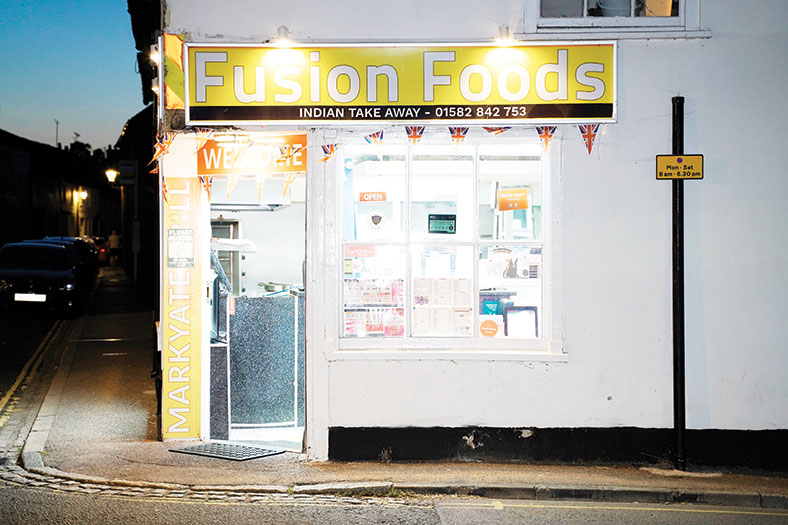
Fuson Foods
For Uddin, who opened Fusion Foods in 2019, having previously had a restaurant close by, business boomed during the Covid-19 pandemic. He has noticed however that the takeaway is not as busy now as it has been, with rising energy costs making people more cautious about where they spend their money.
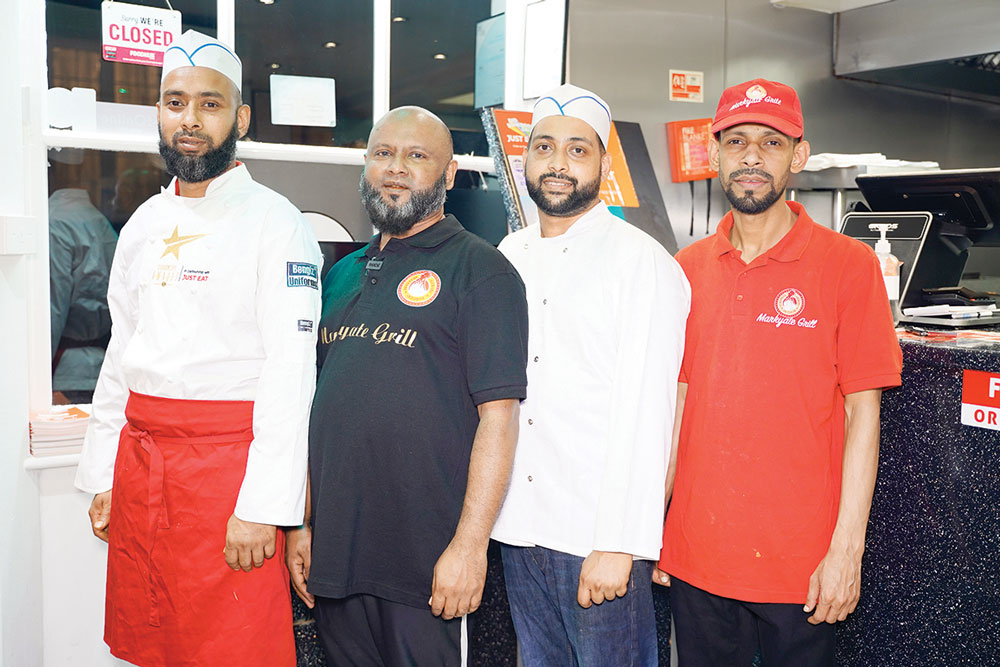
“We are seeing a pattern now with our regulars who used to come in two or three times a week – now they are just coming once a week,” he says. “It’s certainly quietened down.”
Uddin has seen a huge increase in the price of food – a 10 kilogram box of chicken for example that used to cost £34 is now £51. He says that dealing with the rising cost of living is not as simple as increasing the prices of food; instead he uses social media such as Facebook and Instagram to offer promotions to his loyal customers, one example being if they have 10 takeaways, they can get a certain amount off the next one. He has also reduced his menu, taking out several fish dishes, such as those featuring monkfish, trout and seabass.
“It’s about being clever with the advertising and keeping standards high,” says Uddin. “The quality has to be consistent and the food has to be tasty. We’re in a small village of around 4,000 people and everyone knows everyone else, I know all the takeaway’s customers. We’ve been in business for three years now. When you first start, everything is new and it’s all too easy for standards to slip but you need to keep the same level of consistency.”
Uddin is also keen to involve customers as much as possible, particularly when designing new menus, and he often invites up to 10 customers to taste new dishes and give their opinion.
“We give tasters to customers when they come in and I cook new dishes and ask them what they feel is right or wrong with it,” he says. “We have something similar to a korma and when we introduced it, we invited the korma lovers to come in because they will know whether the taste will work and it’s similar with the spicy dishes. There’s a lot of competition, even in a small village so we need to make sure the quality is always high.
With its location within a small village, Fusion Foods does not use third party delivery options, employing its own drivers instead. For Uddin, it’s vital to have reliable staff on board, particularly with a takeaway business, where people expect to have hot food, delivered on time. He is now looking to open another takeaway close by, in Harpenden.
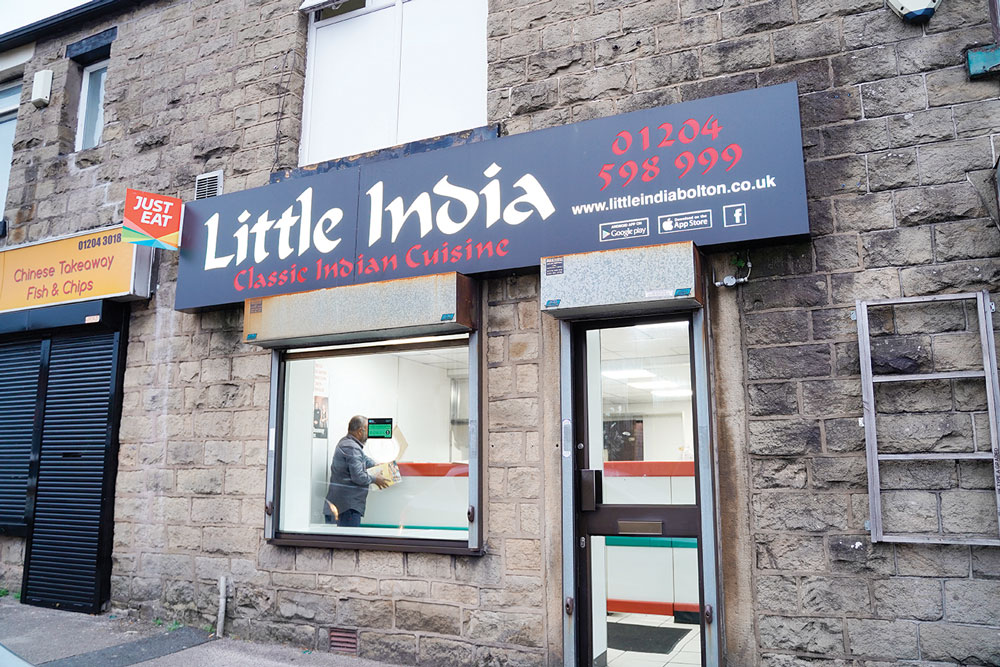
Little India
Little India’s Abdul Malik enjoys the fast-paced environment of a takeaway business, and the fact that he can serve multiple customers all at the same time, He thrives on the pressures of takeaway – ensuring that the time from order to delivery is acceptable, that food is delivered on time and that dishes remain hot.
Like Fusion Foods, Little India does not use third party partners for orders and deliveries, preferring to handle the logistics in-house.
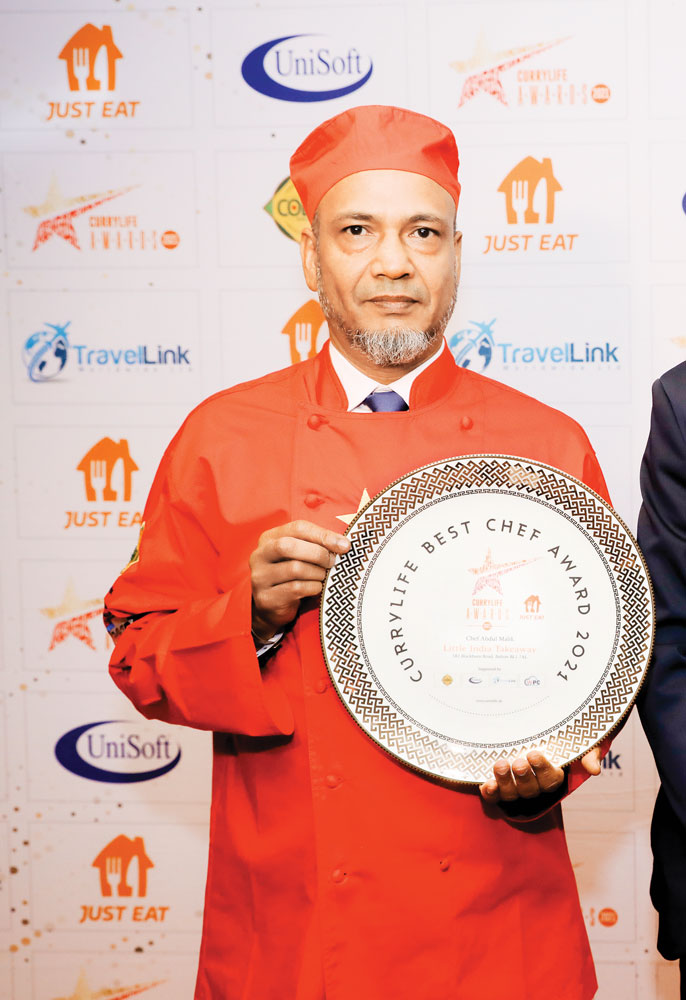
“We are an independent business, we advertise for ourselves and we don’t use a third party as we think we deserve the credit,” says Malik. Third parties provide a website – the hard work comes from the inside.”
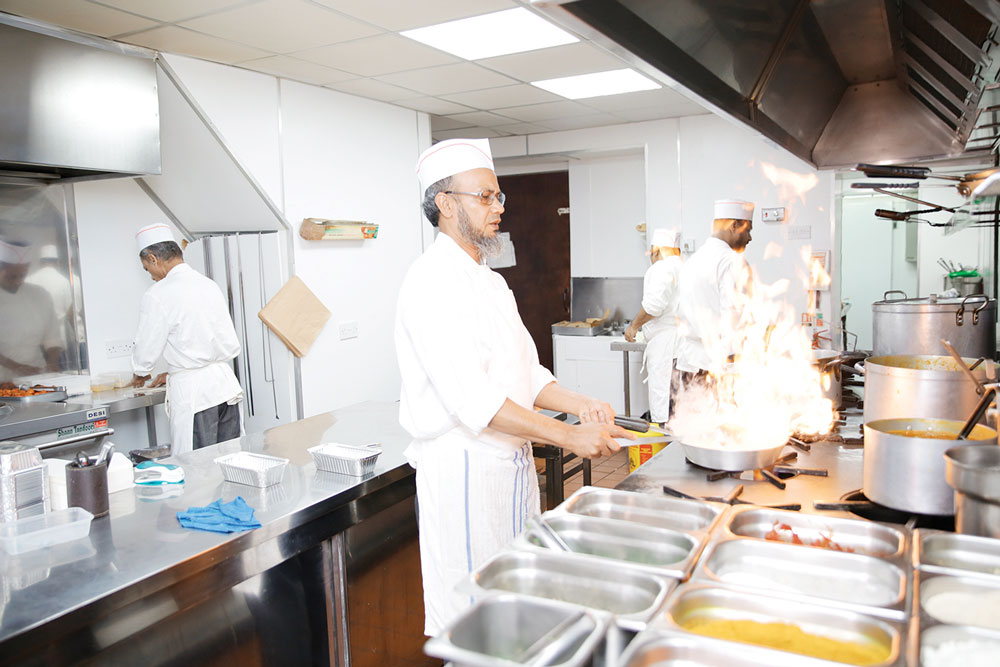
Over lockdown, Malik says the Bolton takeaway was very busy, with the business switching to contactless delivery and ensuring it could keep its customers happy while managing health and safety levels within Covid guidelines. But he acknowledges the situation is quite different now, with increasing pressure on the business owing to the high price of ingredients.
“We use quality ingredients but due to inflation, the higher cost of living and the situation in Ukraine, prices have shot up,” he says. “We want to ensure our customers get the same quality so we are faced with a real challenge. We’ve been in our location for such a long time and customers have recognised our hard work, they are like family and they have seen us provide the same consistency time and time again.”
Malik says it is important that customers realize that any price changes are not about making more money but about keeping the business going and providing the same standard his customers are used to.
Little India also endorses social media, saying it is a great way to keep in touch with customers and promote the restaurant to a wider base.
“We are on Facebook and Google; it’s important to be on these channels because the majority of marketing is done digitally – before it was all about leaflets,” says Malik. “We’ve seen an increase in our business through social channels and it’s easier to talk to our customers via messenger services. There is so much competition in the takeaway industry that we need to keep in touch with our customers and keep them happy so they come back for more.”
Malik also recognises the trend for more healthy food options and says it’s important for perceptions around takeaway food to change. “We are reducing the amount of calories in our dishes and trying not to use too much fat or oil, all of which will benefit our customers,” he says. “There are lots of ways to do this, it’s about being proactive and wanting to change, then you can experiment with different approaches.”
Read more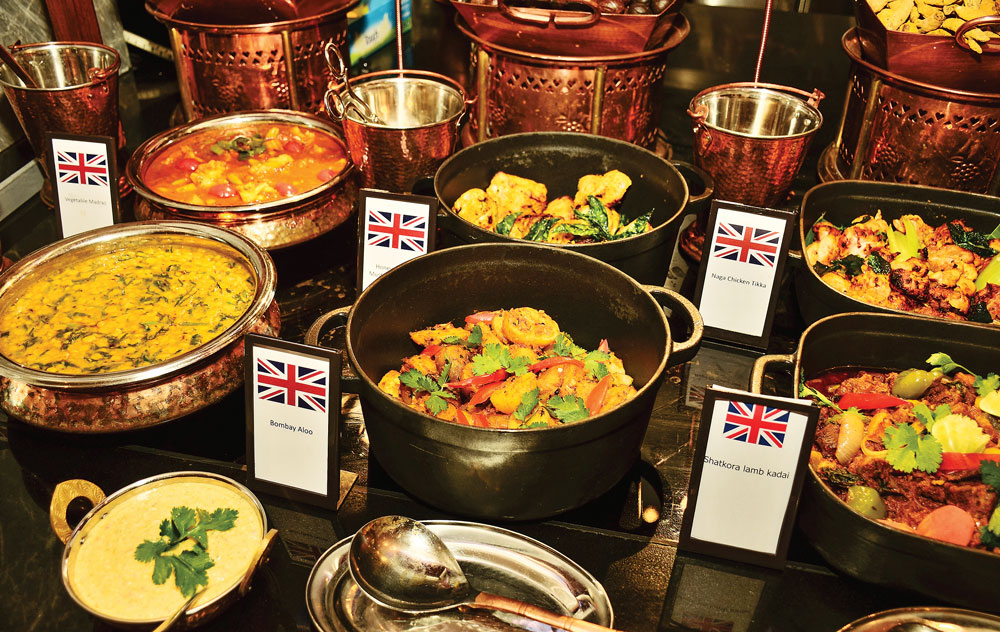
HOW TO GET AHEAD
Taking part in the Curry Life Food Festival is a great way for chefs to improve their knowledge and skills

The Curry Life Food Festival, which showcases some of the UK’s favourite curry dishes alongside the best of British regional cuisine, is taking place in October in Dhaka, Bangladesh. It gives participants the chance to learn new skills, share recipes and gather tips from a range of experts. It’s an inspiring educational, culinary and cultural experience and this year’s UK delegation will be led by Dominic Chapman, chef/patron at The Beehive in White Waltham, and former head chef for Heston Blumenthal.
Learning curve
Curry Life spoke to former participants to find out what they learnt when they took part, and why it’s a must-attend event. Kayum Ali is the owner and executive chef at Spice Fusion in Halesowen and attended the festival in 2017, when it was held at the Hyatt Regency Chandigarh in India. He said being part of the event is a great way to promote yourself and your restaurant, and it has helped to boost Spice Fusion’s reputation among its customer base, as well as attracting new customers.
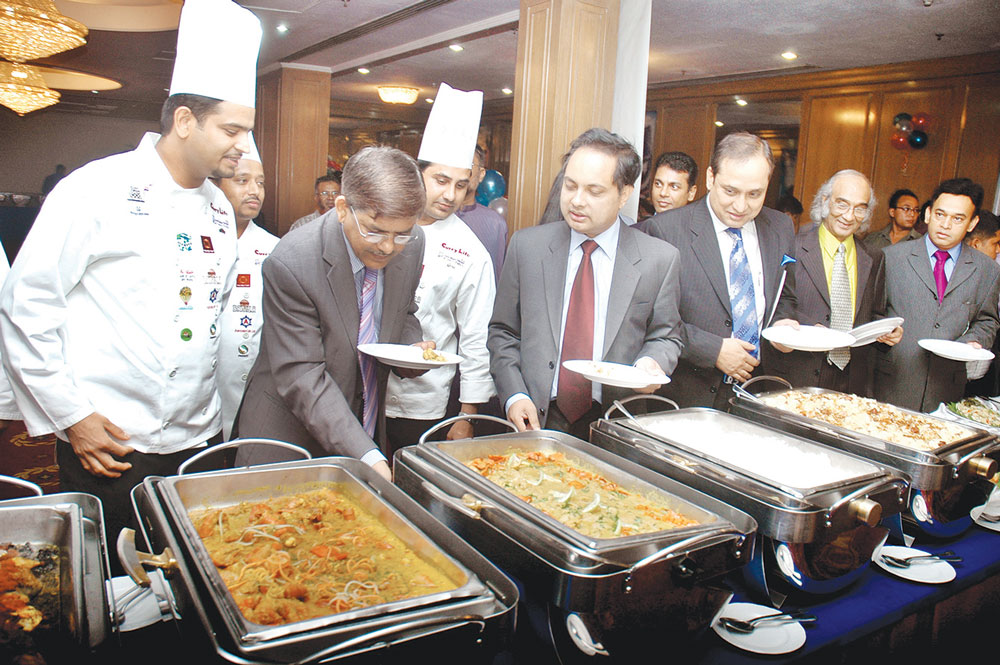
“I went to one festival in India and I have also attended a few other Curry Life seminars and workshops,” he says. “It has given me a real confidence boost as well as teaching me some new skills. It does involve being away for a few days but it’s definitely been worth it for me.”
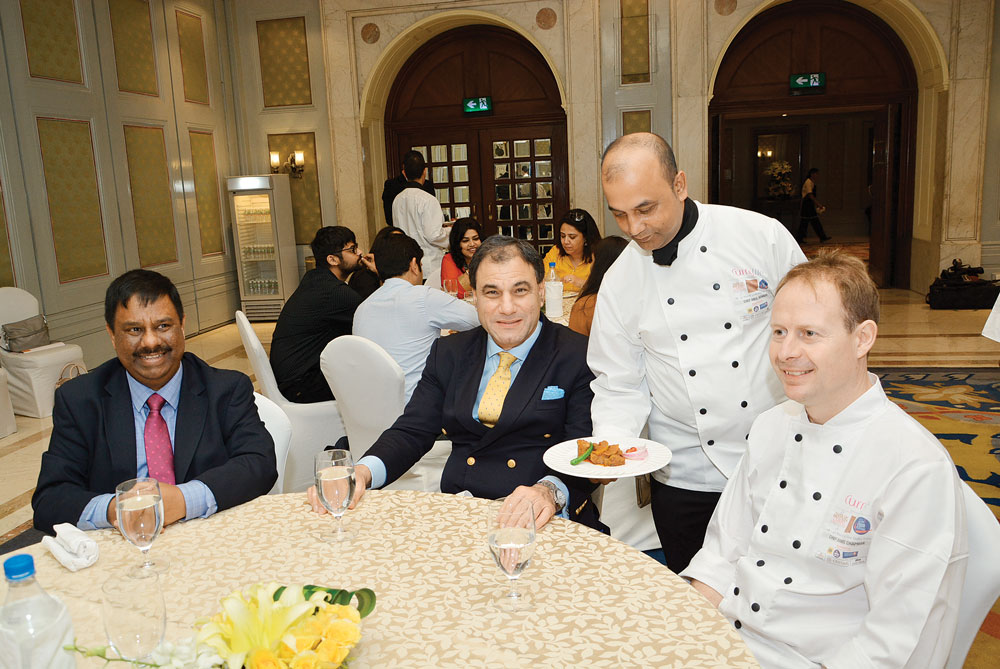
For Abul Monsur, chef at Taj Cuisine in Walderslade, attending the festival was also a memorable experience. He was part of the 2016 event, which took place at the ITC Maurya in New Delhi in India.
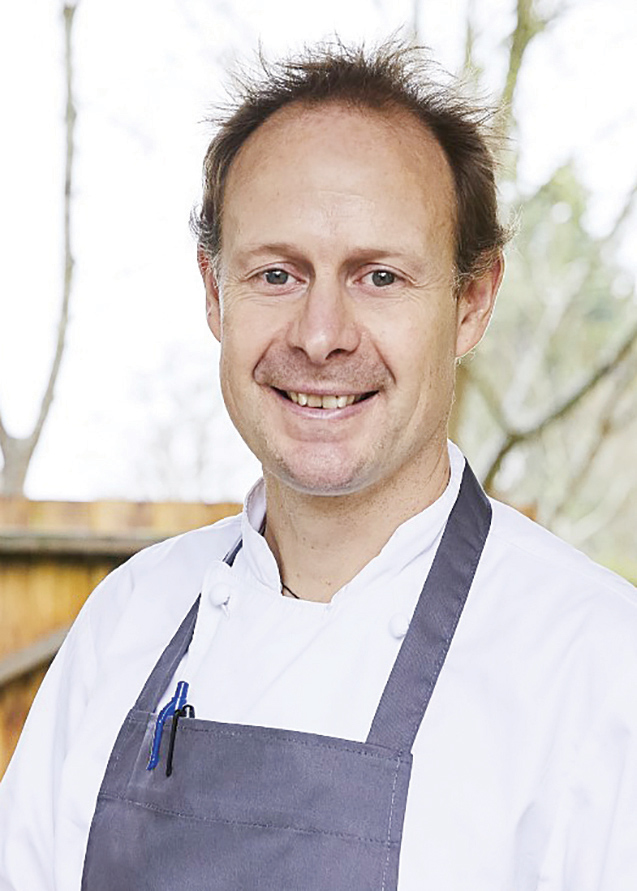
“You can share some of your own ideas with the chefs in the country you are visiting as well as gain some new ones that you can use in your restaurant when you return,” he says. “You are learning every day in a fast-paced environment and it’s really exciting to find out about new trends and to see first-hand what others in the industry are doing.”
Monsur adds that sharing knowledge and recipes can be a great way to improve as a chef, not just on a professional level, but a personal one too and being immersed in live cooking demonstrations is a fun way to learn.
Chef Jamal Uddin from Shozna restaurant in Rochester, Kent has previously attended two festivals, one also in India and the other in Dhaka. He says that those chefs that take part get to experience ‘the bigger picture’ of the industry and learn new techniques, particularly as they are surrounded by highly knowledgeable chefs with years of training between them.
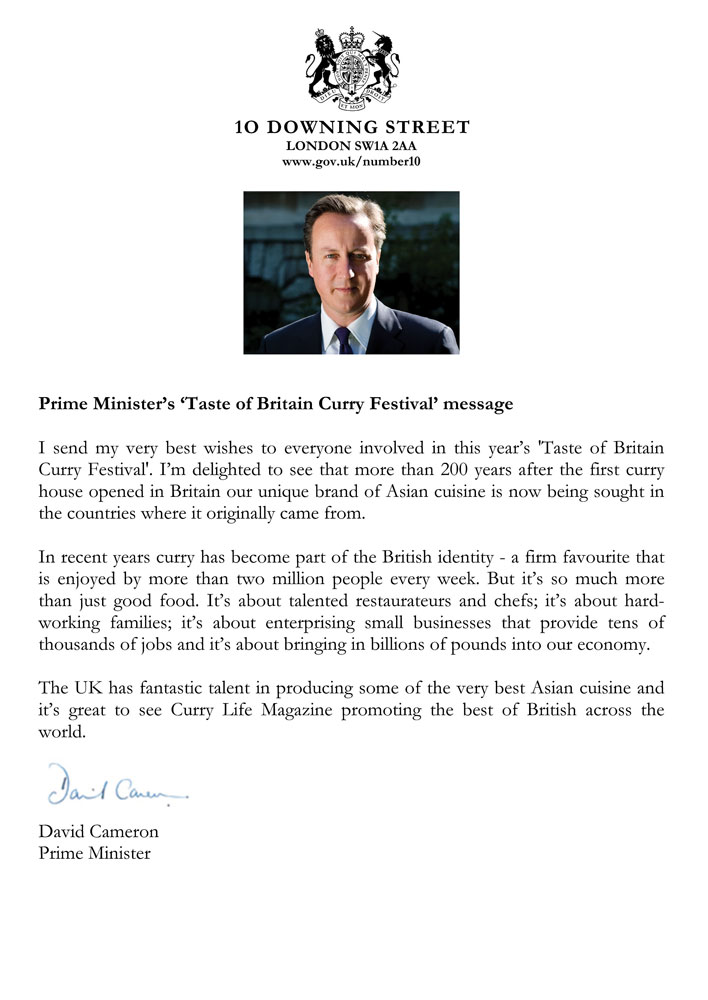
“It’s definitely worth taking the time to go; when I returned from both festivals, I used everything I learnt to improve my knowledge and to become a better chef,” he says. “They were both fantastic experiences and they have given me more confidence to do things in a bigger and bolder way.”
Widen your knowledge
Those participating can also benefit from advice on health and safety. Shamsul Islam, a regulatory service manager for the London Borough of Brent, has been involved in several festivals and will be attending the forthcoming one in Dhaka. His day job involves working with restaurants, shops and hotels to ensure the health and safety of those who work in the borough. At the festival, he will be on hand to ensure chefs understand about food safety and hygiene, such as washing hands regularly, wearing gloves when preparing and mixing food, wearing a hairnet and ensuring food is cooked thoroughly and that cooked rice is not left out or that rice is not prepared three days in advance, for example.
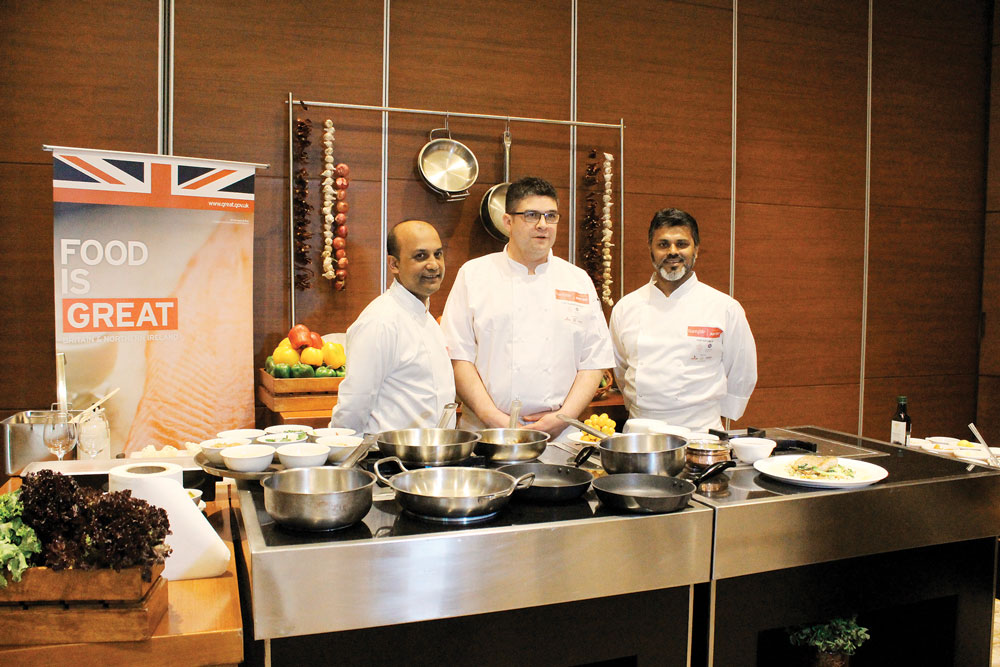
“While they are preparing the dishes and the menu, my role is to help raise the hygiene standards of the food and to focus on health, by highlighting how we can make a high-calorie dish such as chicken tikka masala more healthy,” he says. “We can prepare a vegetarian version instead or use olive oil rather than ghee as an example, which is a possible substitute for many dishes or reduce portion sizes. We want to encourage chefs to rethink and redesign the way they work with food and I am advising on the health benefits.”
Islam says chefs can also learn about making their cuisine more energy efficient. “Instead of preparing a dish five times, can you do it in one go in a tandoor oven for example?” he says. “Restaurants are normally open from 5pm until 11pm and with the high prices of energy and climate change, it’s important to learn about energy efficiency as it can help reduce costs and be more beneficial for the environment.”

He adds that those who participate don’t just have the chance to work alongside Michelin-star chefs and executive chefs from five-star hotels, they also get to learn and interact with front-of- house managers who run complex, large events.
“It’s not just about cooking and improving your restaurant – it’s about understanding a whole range of other processes involved in cuisine and food preparation, for example, looking at the latest technology available,” he says. “You can look at all the equipment on offer in the hotels and see how these work and how they can improve processes and help you to better manage your time.”
Participants can also learn about many other aspects that can help refine their attention to details, such as the best types of knives to use for preparation and how to enhance flavours for different palates.
“Chefs get to exchange knowledge and experience the dishes from other chefs, as well as learning new and different ways to present food,” says Islam. “They can also test new equipment and even find out how to redesign a restaurant menu.”
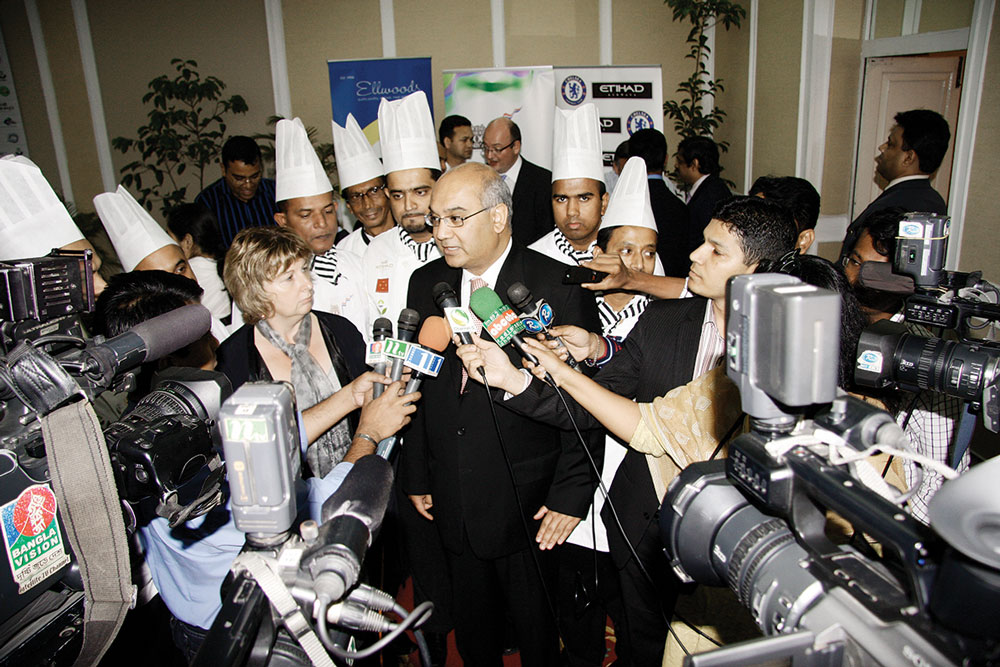
The Festival is taking place from 21-27 October and aims to promote British Bangladeshi chefs’ artistic and culinary skills, highlighting the leading role they play in ensuring curry’s enduring popularity in the UK and beyond. It also aims to strengthen ties between the UK and Bangladesh.
There are limited places available for those who wish to join this exciting culinary journey, or if you are interested in finding out more about sponsorship opportunities, contact Syed Belal Ahmed on 07956 439458 for further details.
Read more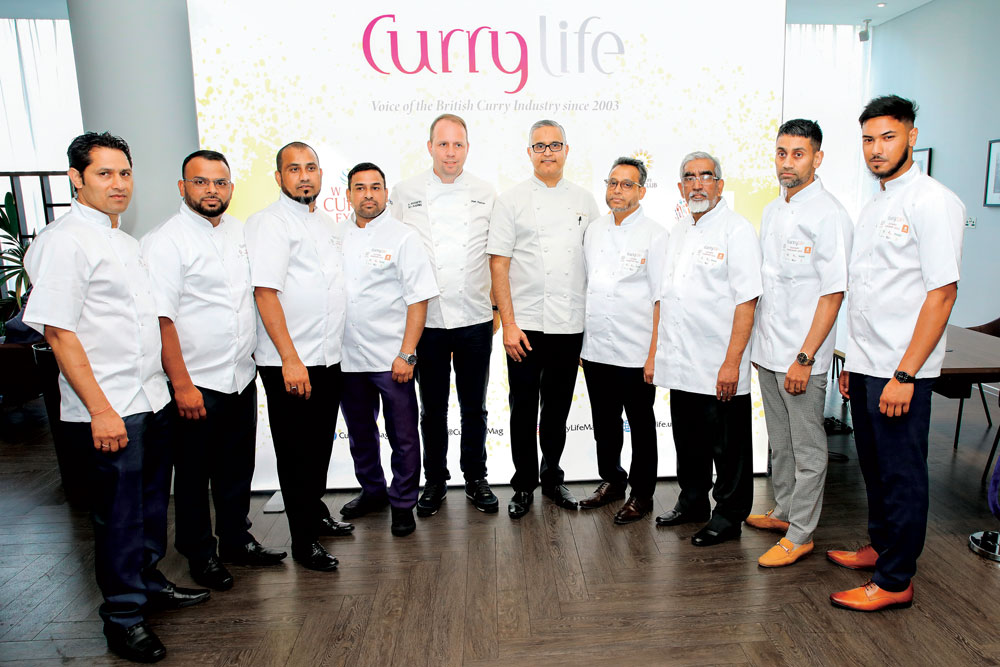
Tips from the top

Curry Life’s latest event, the 2022 Culinary Workshop, featured a host of experts sharing best practice and industry insight
The Curry Life Culinary Workshop 2022 took place on 12 June, with 150 industry professionals gathering together to share best practice, network and pick up more than a few tips. The event, which took place at the Crowne Plaza London Docklands, featured a drinks reception with networking, a series of interactive sessions and certificate presentations for a number of chefs. Guests also enjoyed a three-course dinner, prepared by Bangladeshi catering company Pride of Asia.
Addressing attendees, Syed Belal Ahmed, editor of Curry Life magazine, said: “This is an event about learning, raising standards within the industry and networking and it is nice to get back to some sort of normality.”
Savouring street food
Fergal Mullan, food safety manager UK at Just Eat, a long-time partner of Curry Life, also took to the stage, alongside food safety experts from NSF Ash Pancholi Dhillon, which visits restaurants to support them in achieving better hygiene ratings as well as offering training. Atul Kochhar, the first Indian chef to receive a Michelin-star, led a live cooking street food demonstration, preparing a delicious, mouth-watering Kerala fish curry recipe. It featured spices and condiments such as chopped ginger, garlic, chilli, turmeric, red chili and coriander powder, together with tamarind paste and coconut milk.
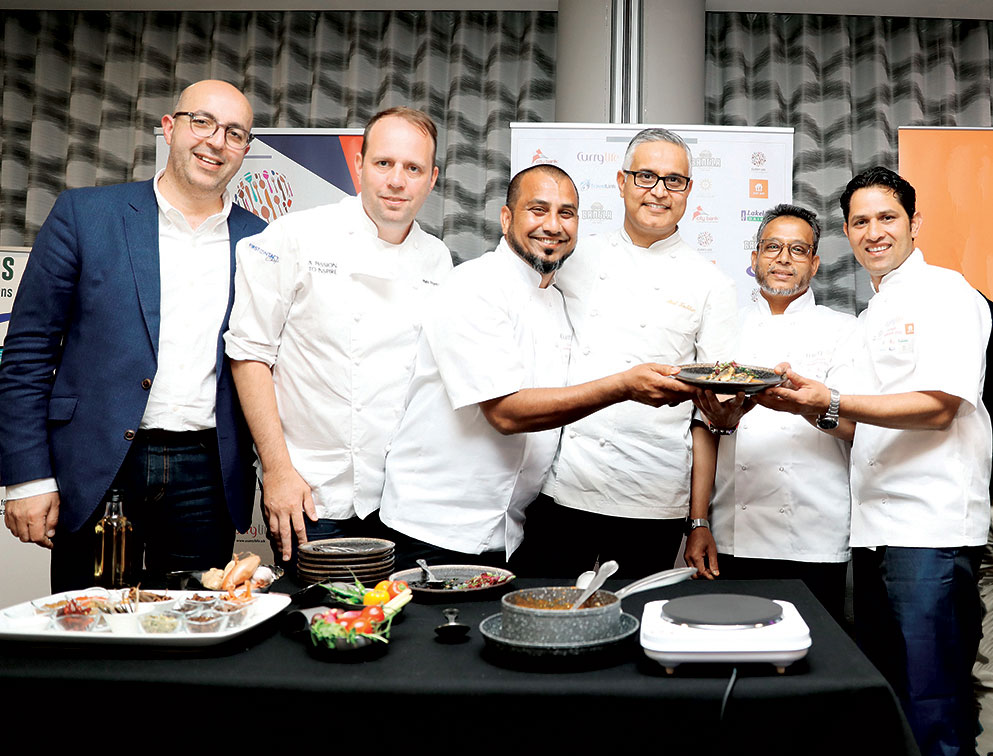
“Spices start popping and releasing flavour into the cooking oil,” Kochhar told attendees. “And that cooking oil carries the flavour over into your curry or the sauce you are making. If you add spices too early they will not release the flavour, if you add spices when the oil is too hot, it will get burnt before it has a chance to release the flavour.”
Kochhar also spoke on how restaurants can counter the high prices of food, which have been rising steadily against a backdrop of the war between Russia and the Ukraine, supply chain issues and high labour costs.
“There will be some costs you will have to absorb – if the price of oil increases five times over, you cannot do the same to the price of your onion bhaji,” he said. “But there will be some things you can increase the price of. Let’s go back to the strength of our cuisine, we have been very strong on vegan and vegetarian food and we need to adapt, bring those dishes on the menu, which will help give you better margins.”
Michelin-star chef Mark Poynton spoke about the benefits of sustainability focusing on embedding sustainability within your business and how it impacts many other aspects beyond food and waste. This includes how you treat your staff and how to ensure your business can maintain its presence over the next decade.
“Sustainability is not just about where we buy produce from and what we do with zero waste,” he said. “It’s about how we run our business and much more besides – there is a bigger ecosystem than just the food.”
Ludovica De Pieri, a nutritionist and management consultant to the food industry and founder of Reveal My Food, also delivered a presentation, with the aim of highlighting current food-themed legislation, specifically new rules around calorie labelling. She also spoke on how restaurants can optimise their operations, how they can get the most out of ingredients and how to reach out to more diners.
“We’re also sharing some details on our website, including information on how to optimise allergens,” said De Pieri. “The whole point is to try to reduce the pressures facing restaurants.”
Syed Nahas Pasha, Curry Life magazine editor-in-chief said the event aimed not just to bring people together to share insight but was also aimed at inspiring the younger generation.
“The industry is going through a very tough time at the moment because of huge increases in the cost of living,” he said. “Everything has gone up in price and restaurants are suffering so we wanted to tackle these issues and offer some advice and guidance. Safety and hygiene is also very important.”
Delegates were keen to network and share knowledge, with Ruhel Hoque, managing director of The Indian Ocean restaurant in Cambridge saying it presented a great opportunity to network and learn about issues affecting the industry, such as forthcoming or new legislation. Other attendees said there was a fantastic vibe during the event, and that it was ‘great to see so many familiar faces as well as new ones.’
The event also featured stands from Curry Life partners, including Lakeland Dairies, which has recently launched a long-life single cream product and Bangla Beer.
Chefs who received their certificates on the night included Ruhel Hoque from The Indian Ocean, Brian Mohan Miah from Cafe Spice, Syed Zohorul Islam from The Capital, Mohammed Al Amin Ali from Milennium Balti, Mohammed Shaek Ahmed from Junoon, Tipu Miah from Zyka, Jamal Uddin Ahemd from Shozna, Joe Choudhury from River Spice and Khayer Ahmed Chowdhury from Kaz’s India & Bangladesh Restaurant.
The event was held together with support from headline sponsor Just Eat, with additional event partners including Unisoft Solutions, City Bank, Bangla Beer and Travel Link Worldwide. Curry Life’s next event will be the Curry Life Awards, which reward and recognise the individuals who represent the very best of the British curry Industry. It takes place on 9 October at The Great Room, The Grosvenor House, London. Find out more about the event by visiting www.currylifeawards.com.

Paying the price

Hardly a day seems to go by without another worrying statistic about price hikes. In the last month alone, petrol costs have soared and retail price inflation hit 2.8%, the highest figure since July 2011, driven by an increase in fresh food prices, according to the British Retail Consortium. Businesses have also struggled with rising energy costs over the last few months and there are warnings of worse to come.
Curry houses are increasingly worried about their future prospects, having been hit hard by the price of oil, in particular that of sunflower oil. With the majority produced in Ukraine, prices have soared due to the ongoing conflict with Russia. Spice prices have increased too.
Rahims, the UK’s largest Bangladeshi-owned cash-and-carry, which supplies over 5000 retailers and trade customers across the UK and beyond, and Ana Miah, the owner of Juboraj restaurant, in Wales, offer their views on the pricing issue.

Sharif Hussain, Director, Rahims
The outlook has been quite challenging for a few years, starting with Brexit, followed by Covid and now inflation – all of this is causing prices to go through the roof. Brexit uncertainty meant the general public spent less and there was uncertainty surrounding the trade rules with the EU, compounded by worry about the imports and exports and the amount of red tape. This resulted in lots of stockpiling.
During Covid we had panic buying which led to well-documented supply chain issues and there were increasing costs in manufacturing from a number of factors, for example, staff shortages in India, Bangladesh and many other countries. During the global pandemic, everyone faced really challenging situations and factories were closed and it was difficult for the manufacturers themselves. Then there are problems with freight, with not enough empty containers heading back to source to bring in the goods from abroad. This means freight costs have just soared, and it all has a knock-on effect. There is also a backlog at UK ports: a shortage of staff means longer times to process imports and this also has an impact on the supply chain.
Smart purchasing
We initially tried to swallow the costs as much as we could but it gets to a point where it is unsustainable, particularly when you look at the current climate, with energy bills increasing, and minimum wages stagnating. It all has a knock-on effect and we have to pass these costs on; people are understanding luckily but we have been advising our customers as much as we can about smart purchasing, This means buying now to prevent further issues or finding cheaper alternatives to basmati rice. We’ve seen a shift in our customers’ buying habits, changing from traditional basmati grain to extra long grain; there is one and a half percent yield in comparison, so we are advising people to spend smarter. But prices are continually going up, with spices it is a daily thing. It’s also challenging with the war in Ukraine and the oil situation, while a lot of chicken comes in from Europe; the price of chicken has soared and we have no idea when this will end.
With smarter purchasing, we are advising people where they can save money without compromising on quality. Traditional balti houses that ‘cook out of a can’, such as those using premade marinades, are likely to suffer but those that are smart, that are looking at fusion cooking or using fresh ingredients, will come through this crisis strongly. Premade marinades make it easier for the restaurant to have fewer skilled employees, saving on staffing costs but then it does not make you unique. It will be these sorts of businesses that will suffer while those that are spending a bit more on quality, will do well.
We are also advising our customers about the benefits of going digital in terms of having to adjust their prices in the current climate, as they won’t have to spend so much on reprinting costs, for example. It’s important to go digital as soon as you can, with your menu and advertising.
Next steps
We need a level of cohesion within local businesses: we are all in the same boat, let’s not shoot each other in the foot. We need to address our issues altogether and come up with a plan that suits us all – one rotten apple can bring everyone down.
Is it reasonable for restaurants to increase the price of dishes? It’s difficult to say whether it is good or bad, and what else can they do? They can either change the ingredients, and compromise on quality or in order to maintain quality, they have to increase prices. If the quality goes down, customers may not come back again. You have to be smart and look at alternatives.
Thankfully we all need to eat and we have all managed to save some money during Covid. People do have disposable income to spend and once inflation settles down, who knows?
At Rahims we are actively working with manufacturers on a regular basis to try and maintain price levels for the caterers. We are trying to take advantage ahead of any further price hikes and as we have live information on price movements, we are looking at how best to advise our customers on their purchases.
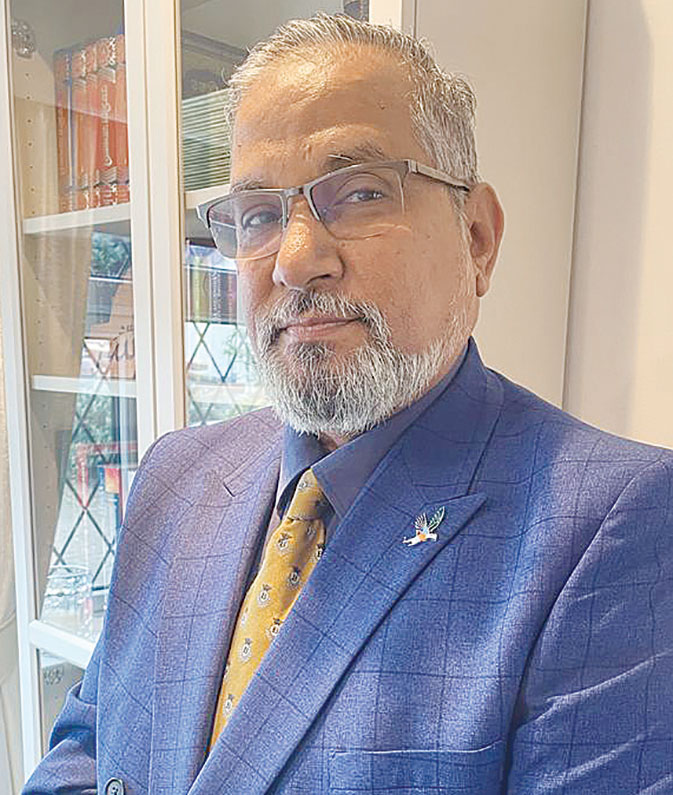
Ana Miah, Owner, Juboraj
The cost of goods, ingredients and energy has had a huge impact on our expenditure – week in and week out, our outgoings have substantially increased and we are finding it very difficult to sustain levels of business. Increasing the prices on our menu is easier said than done, we don’t particularly want to pass on our price increases to our customers. If we were a seasonal business, we could change prices according to what we pay our suppliers but unfortunately, this is not the case.
Challenging times
We are finding it very difficult to pass on extra increases to our customers so we are having to bear it for the moment but how long this can go on for is anyone’s guess. We can’t sustain this for months to come – we have put up prices in the takeaway sector but at present, for those dining in we‘ve maintained the same prices. It’s easier to justify price increases with the takeaway than with the dining-in menu as we offer quite generous portions.
We haven’t explored digital menus just yet; as a lot of our menus are printed, it’s complicated to make these sudden changes. We do have our own website for online ordering and also use a third party, Uber Eats. We try to attract customers to come onto our website by giving out leaflets, for example, offering them a discount if they order directly from us rather than using a third party. It’s something I have started relatively recently and we are seeing a good number of people moving to our own web ordering system rather than going through a third party. We may see a time when enough of our customers have moved to our website so that we can reduce our reliance on third parties, although we introduced this during the pandemic to help boost the takeaway side. You have to do a bit of mixing and matching and see what works and be prepared to change if necessary or do a number of trial runs.
Healthy approach
We are making a conscious effort to provide more healthy food using ingredients that are better for the consumers. We are aware of the high level of calories that some of our dishes can contain, so we are cutting down on our use of oil. Indian cuisine has a reputation for being unhealthy so it’s important – even in the context of price hikes, to keep improving on these areas in order to keep our customers coming back. We have certainly become very price conscious and we are looking to seek deals wherever we can find them and buying non-perishable goods in bulk. We are in a more fortunate position as we have extra storage space so we can store many goods. It’s about finding the right solutions that suit your business the best, testing these and seeing what difference they make.
Read more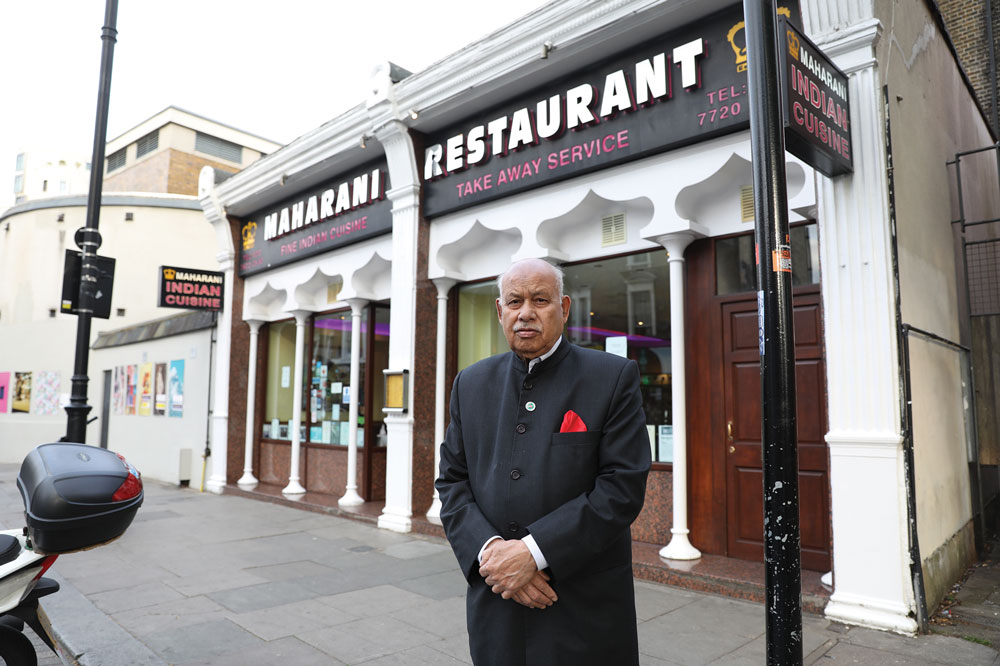
Leading Light
Shamsuddin Khan’s influence extends far beyond having opened one of the first Indian restaurants in London, as Curry Life finds out

Shamsuddin Khan, now in his 80s, has experienced first-hand the many changes in Bangladesh’s political, historical and cultural landscape. But it’s not from being in the country itself, as one might imagine, where he’s seen these changes, but rather from a corner of south west London – Clapham to be precise.
It’s here you’ll find Maharani restaurant. Khan has been the owner for the last 65 years, ever since it opened in 1958, and deservedly has a reputation as one of the UK’s founding curry restaurateurs. But Maharani – and Khan aren’t just known for putting London on the map for Indian food – the restaurant was also a gathering place for the Bangladeshi community in the 1970s and early 1980s, particularly for supporters of the Awami League political party. Khan was the founder of the UK arm (while not involved today, he is still very much respected by existing members of the League) and his ties with the party led to a close friendship with Sheik Hasina, the current prime minister of Bangladesh.
Her father and other members of her family were assassinated in 1975 while she was away in Germany; as the exiled opposition leader following her father’s death, she visited London, found her way to Maharini and often stayed with Khan and his wife in their home, just a few minutes’ drive away from the restaurant.
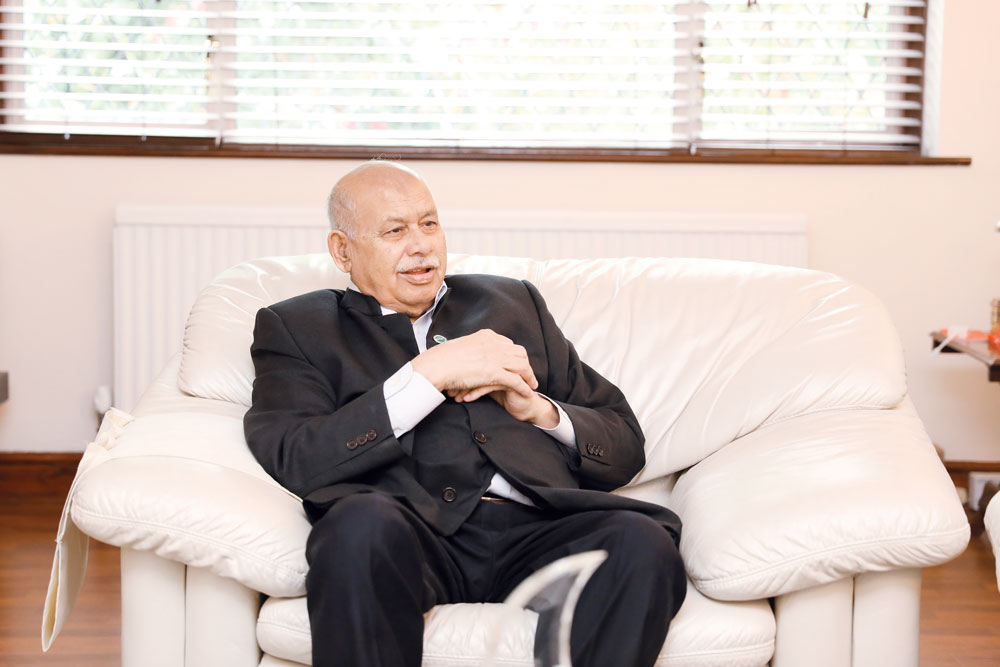
Opportunity knocks
It’s in that very same house, in a modest living room, where Khan is speaking to Curry Life, sharing some of the more colourful moments from his fascinating life story. He first came to London when he was 17, finding work in an Italian restaurant in Soho’s Old Compton Street. Over two years, he honed his restaurant skills, moving from the kitchen to front of house, perfecting the art of making tea, and eventually moved on to work at Jaipur, an Indian restaurant in Shepherds Bush. At the age of 20, together with business partners, he then bought the leasehold to an existing Italian restaurant in Clapham, which eventually became Maharani.
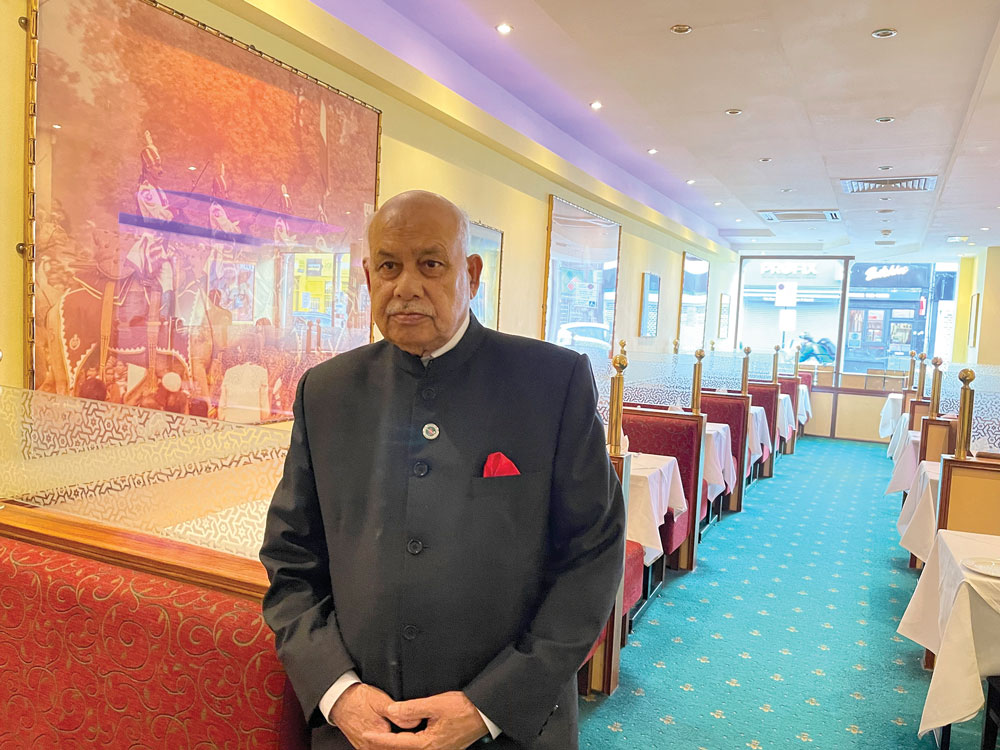
At the time the area, much like other parts of London, was run down and curry was something of a novelty. Khan even recalls having to procure spices from unusual places, such as the local chemist and having to grind them himself. Word soon spread, however, about the cuisine and as Khan says, many people were attracted as they had colonial ties to India, having previously visited or worked in the country. Business picked up a few years later, in the late 1960s and early 1970s, when many parts of London were regenerated under then UK prime minister Harold Wilson’s Urban Programme.
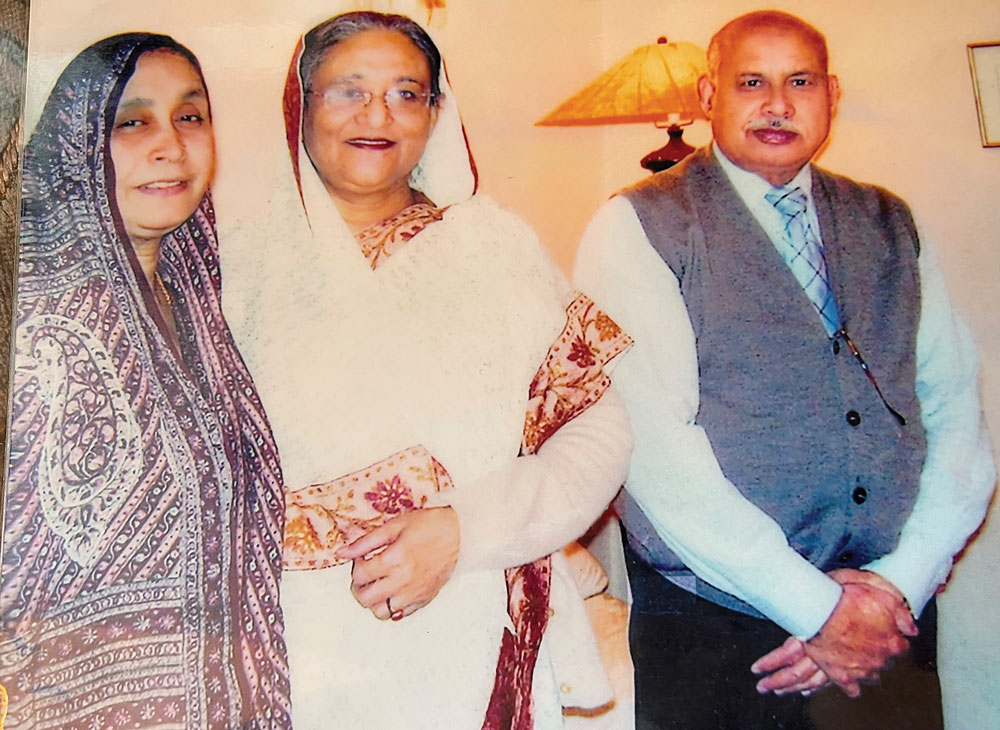
“People became more interested in trying Indian curry – we had our menu on a blackboard, with prices and items, just a few dishes including chicken curry,” recalls Khan, who managed the front of house. “The restaurant was busy every Friday and Saturday, and was packed after the pubs and clubs shut.”
Most of the Indian restaurants at the time were based in London’s West End (Veeraswamy in Regent Street is often credited as the being the oldest in London, having opened in 1926), so Maharani was able to establish itself as a restaurant that people were keen to travel to. Khan says that at the time, people were happy to help others out. He was even called the ‘Young Governor’, with many people coming to visit, impressed by the young entrepreneur and what he had already achieved.
Well-connected
It seemed a natural progression for the restaurant to become a hub, a place where many Bangladeshis gathered to exchange ideas, particularly with Khan’s ties to the Awami League, and by 1973, Khan had purchased the freehold and bought out his previous business partners.
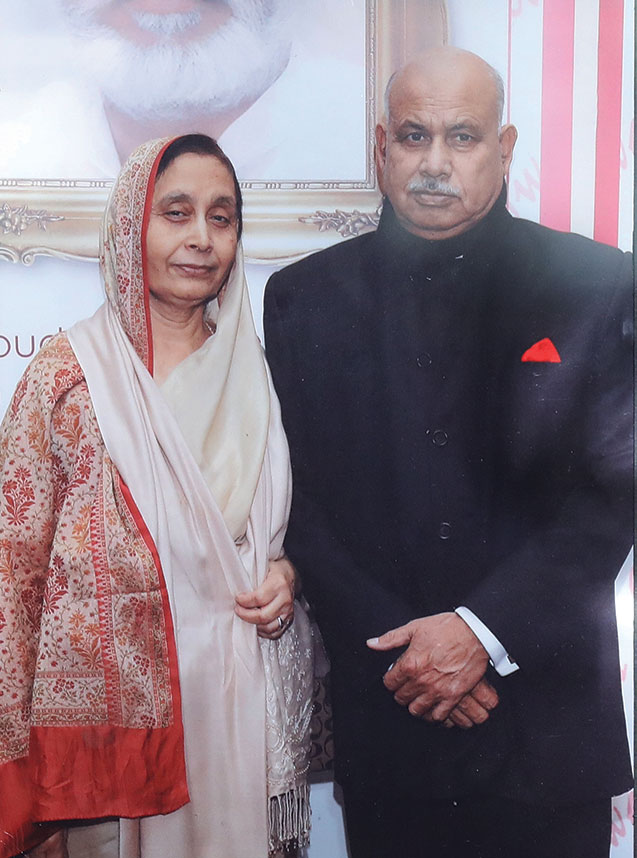
Mrs Sofrunnessa Khanom and Mr Khan 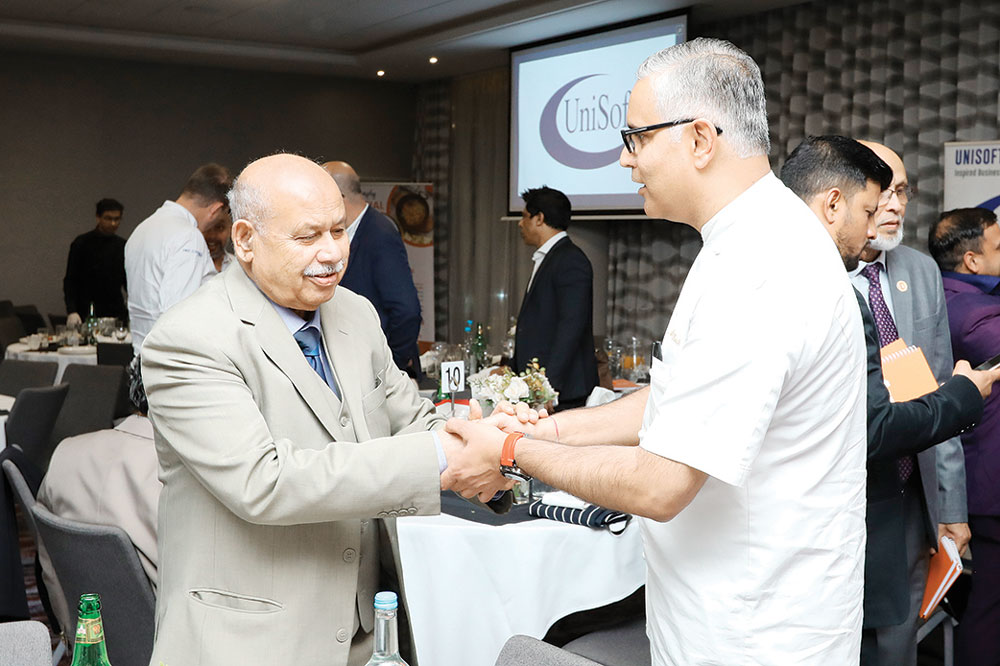
With Chef Atul Kochhar
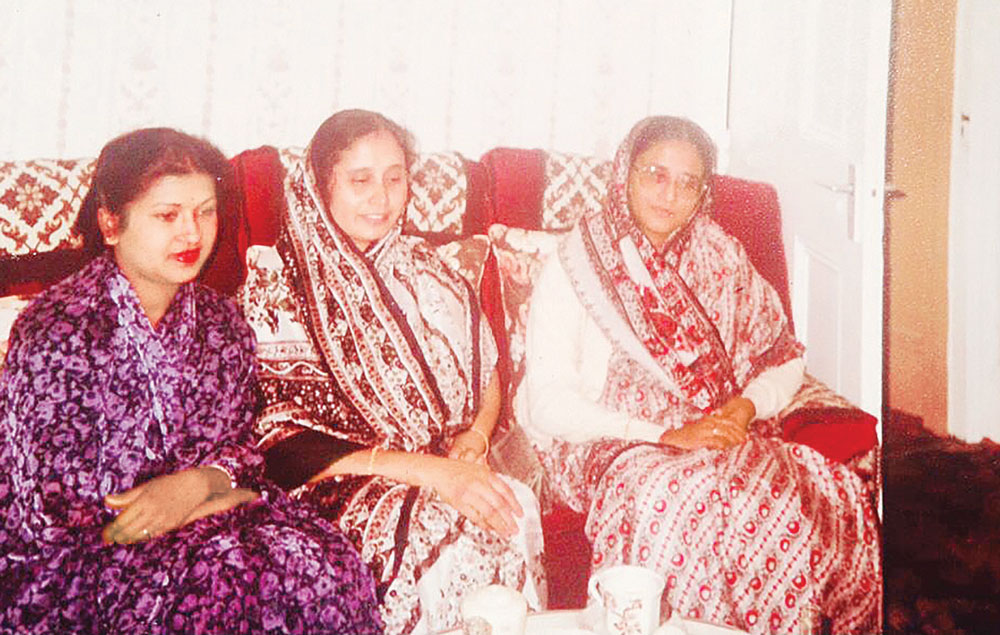
“There were still not many restaurants at that time so Maharani became a community space for supporters of the League – that’s how I became connected to Sheik Hasina,” explains Khan.
The restaurant also grew a very loyal customer base, many of whom still visit today, some travelling long distances. Khan remembers one particular customer who was seven years old when he first visited; he has since moved away from London but visits with his own children from time to time when he is back in London.
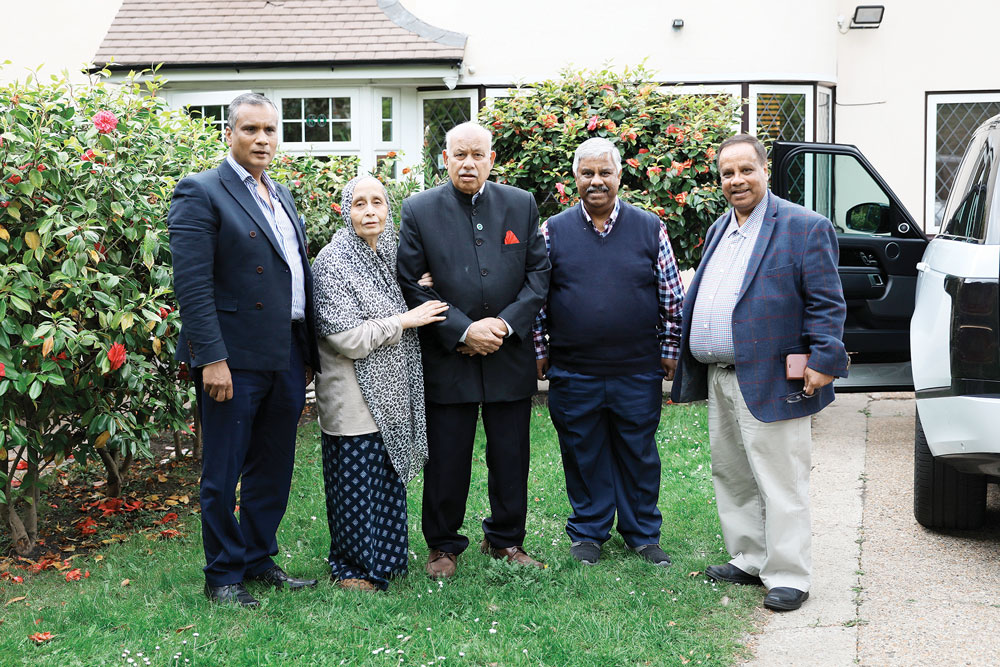
Today, Maharani is as popular as it was all those years ago, and the menu features a mix of dishes such as Madras, Korma and Bhuna curries alongside house specials such as Shorisha Murg, (described as hot, spicy with mustard paste), Murgh e Zoyton (chicken tikka flavoured with olive & fresh spices, slightly hot), Gost Kata Masala (Diced lamb pieces cooked in a special sauce made from yogurt & fresh herbs) and Chicken Rajeshwari (cooked with fresh herbs, tomatoes, chutneys, coriander, ginger, garlic and green chillies).
The restaurant has also attracted its fair share of celebrity diners, including the actor Pierce Brosnan and television presenter Sarah Kennedy. It’s also won numerous awards and expanded over the years. In 2002, due to ongoing demand, Khan bought the site adjoining the restaurant and the restaurant now offers 150 covers. Other restaurants followed too – a total of 11, within London or close to the capital, including takeaways but Khan now only operates two – the existing Maharani and another one based in Camden, which is managed by his nephew, Abdul Karim Nazim. Alongside the catering industry, Khan is also involved in a cash and carry business in London’s east end, owns properties and several tea plantations in Bangladesh and has also contributed to a number of charitable endeavours.
Facing the future
While Khan has carved out an impressive business empire, Maharani is where it all started and it’s clear to see that he is finding it hard to let his business go; he visits the restaurant most evenings and says he feels uneasy when he is not there. Talking about his succession plans is difficult too as none of his three children (two sons and a daughter) are interested in the restaurant industry or have any intention of taking over the business, having carved out successful careers in completely different sectors – within the foreign office, education and aviation.
It’s a common problem faced by many within the industry. Bangladeshi restaurant operators are finding out their children who have been brought up and schooled in the UK have little interest in learning a trade they perceive as involving long hours and perhaps not as well paid as other careers. They also have less ties with their mother country and therefore perhaps less of an emotional connection with their parents’ businesses. The curry sector is also facing other issues such as a continued squeeze on margins and Khan believes there is no easy solution to help improve the sector’s outlook, but suggests that the use of buffets and the way food is presented need to be addressed. And what of Maharani’s future, given that Khan has been at the helm for more than six decades now? With two nephews currently working with him, Khan is hopeful that the Maharani name will continue to make an impact for years to come.
